#Somalia-Kenya relationship
Explore tagged Tumblr posts
Text
Al-Shabaab Militants Carry Out Gruesome Attack in Kenya, Leaving Five Civilians Dead, Including a Student
In a horrifying incident, five innocent Kenyan civilians lost their lives as al-Shabaab militants launched a vicious assault on two villages in Lamu County on Saturday evening. The police, along with witnesses, have confirmed the distressing events that unfolded. The attack occurred at approximately 7:30 p.m. when the armed assailants stormed the villages, forcibly dragging the victims out of…

View On WordPress
#Al-Shabaab#Al-Shabaab attacks#Al-Shabaab militants#Counterterrorism efforts#Current events#Extremist attacks#Humanitarian crisis#Kenya#Kenya military#Kenya-Somalia relations#Lamu County#Mogadishu#Security#Somali government#Somali news in English#Somalia news#Somalia-Kenya relationship#Terrorism#Violence
0 notes
Text

President Hassan Sheikh Mohamud (November 29, 1955) the current President of Somalia, Union for Peace and Development Party leader, and member of the Abgaal Hawiye clan, was born in the town of Jalalaqsi, Somalia. He received a BA in Technology from Somali National University.
He married Qamar Cali (1981). He became a member of the faculty at the Technical Teacher Training College in the Hodan district of Mogadishu. He earned an MA in technical education from Bhopal University. He married Sahro Cumar Xasan (1990). He completed intensive courses in conflict resolution at the Eastern Mennonite University’s Summer Peacebuilding Institute.
He was installed as President of Somalia. He was honored in TIME magazine’s annual list of the 100 most influential people in the world. He signed the UN Convention on the Rights of the Child on behalf of the Federal Republic of Somalia.
After six years as the country’s president, he yielded power to a new President, Mohamed Abdullahi Mohamed. In the 2022 election, he, the father of seven children, defeated the incumbent in a protracted contest decided by national legislators picking the head of state in secret balloting. He received 214 votes while the President received 110 ballots.
He won the majority of support in the Somalia Parliament by holding his predecessor responsible for failing to rein in Al-Shabaab, the Somalia-based Islamic insurgence group operating in that nation as well as Kenya and Yemen. He and his predecessor have relied on African Union forces which have maintained a significant military base near Mogadishu. The new president promises to act as a regional peacemaker in the Horn of Africa by repairing the dysfunctional relationship between Eritrea and Ethiopia and by restoring ties with Ethiopia after three decades of intermittent conflict over the Ogaden region which both nations claim. #africanhistory365 #africanexcellence
0 notes
Text
Strengthening Defence Ties: UK's Strategic Visit to East Africa
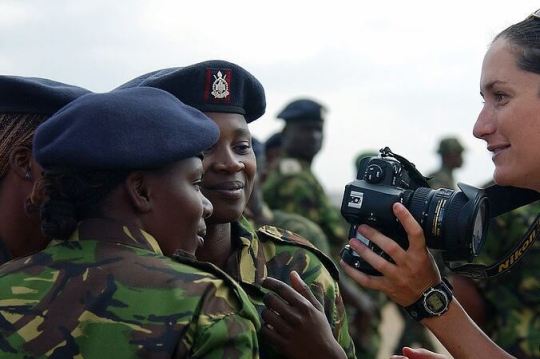
A Focus on Regional Security and Cooperation
The UK's Minister for the Armed Forces has recently embarked on a significant journey to East Africa, marking a pivotal moment in the UK's engagement with regional defence leaders in Somalia and Kenya. This visit underscores the UK's commitment to bolstering defence cooperation, enhancing regional security, and fostering peace through strategic partnerships and training initiatives. Deepening Defence Relationships In the heart of Mogadishu, discussions between the Armed Forces Minister and Somali President His Excellency Hassan Sheikh Mohamud highlighted the UK's dedicated support for Somalia's ongoing security efforts. The Minister's engagements with British soldiers on the ground, providing essential training to the Somali Security Forces, and his deliberations on the African Union Transition Mission in Somalia (ATMIS), reflect a comprehensive approach to supporting peace and stability in the region. Supporting Somalia's Security The UK's collaboration with the Federal Government of Somalia is a testament to the enduring partnership aimed at countering the extremist group al-Shabaab. The Minister's reaffirmation of the UK's support in tackling the threats posed by such groups exemplifies the commitment to securing a stable future for Somalia and the broader region. Enhancing Kenyan Military Capacity The visit continued in Kenya, where discussions with Cabinet Secretary for Defence Aden Duale focused on an ambitious vision for defence partnership. The UK and Kenya's Defence Cooperation Agreement serves as a foundation for enhancing Kenyan military capacity and promoting regional peace, demonstrating the strategic importance of UK-Kenya defence relations. Training and Engagement: A Path to Regional Security The UK's role in supporting the development and operation of the Counter Insurgency Counter Terrorism and Stabilisation Operations Centre project (CITSO) alongside the US and Kenya, highlights an innovative approach to improving regional security. By fostering a multi-agency approach to joint training, the UK is at the forefront of international efforts to address security challenges in East Africa. Joint training exercises, such as those conducted by UK trained Kenya Marines and the Royal Marines, showcase the practical benefits of deepened defence cooperation. These initiatives not only prepare troops for regional and international missions but also reinforce the UK's commitment to supporting its partners in developing their capabilities to respond to threats effectively. Sources: THX News, Ministry of Defence & The Rt Hon Grant Shapps MP. Read the full article
#AfricanUnionTransitionMission#ArmedForcesMinistervisit#Counteral-Shabaabefforts#DefenceCooperationAgreement#Jointmilitaryexercises#Regionalpeaceinitiatives#Regionalsecuritycooperation#Securityforcestraining#SomaliaKenyadefencepartnership#UKdefencetiesEastAfrica
0 notes
Text
INFIBULATION in FGM (Female Genital Mutilation)
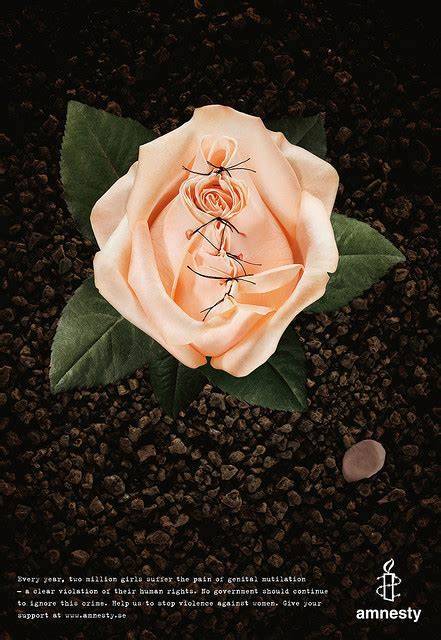
The horror that I am about to explain to myself makes ablation and chastity belts child (play). The cruelty inflicted on these children by ablation and infibulación is beyond words. Such unimaginable ignorance and callousness cannot be comprehended in the 21st Century. Man has learned nothing but greed that gives him the power of obsessive possessiveness and the token of this greed is obfuscated by sex. Thus we have pedophiles like Trump and Biden and sex predators like the Epstein's and Weinstein's who are finally being exposed by a society that was complicit. We have Ballard's banner in THE SOUND OF FREEDOM and the Lydia Cacho's outcry leading this justified crusade against child abuse and trafficking but now we are dealing in a reverse psychology of sexual burkas of ablation and infibulación. Perhaps I am naive wrapped in my comfortable world of conformity, jolted every once in a while by the harsh truth that shatters my imaginary world. I must thank Helena Williams, a friend from my social media MeWe who in an article she posted brought the house of cards I had built down on me. The horror cannot be more terrorizing, yet it exist.

So, what is INFIBULATION?
The short definition by Free Dictionary: "To close off or obstruct the genitals of, especially by sewing together the labia majora in females or fastening the prepuce in males, so as to prevent sexual intercourse.
Read more: Female genital mutilation - Wikipedia
This practice is mainly found in northeastern Africa, particularly in Djibouti, Eritrea, Ethiopia, Somalia, and Sudan. The World Health Organization refers to the procedure as Type III female genital mutilation. Infibulation can also refer to placing a clasp through the foreskin in men. (Infibulation - Wikipedia)
Chastity piercing - Wikipedia
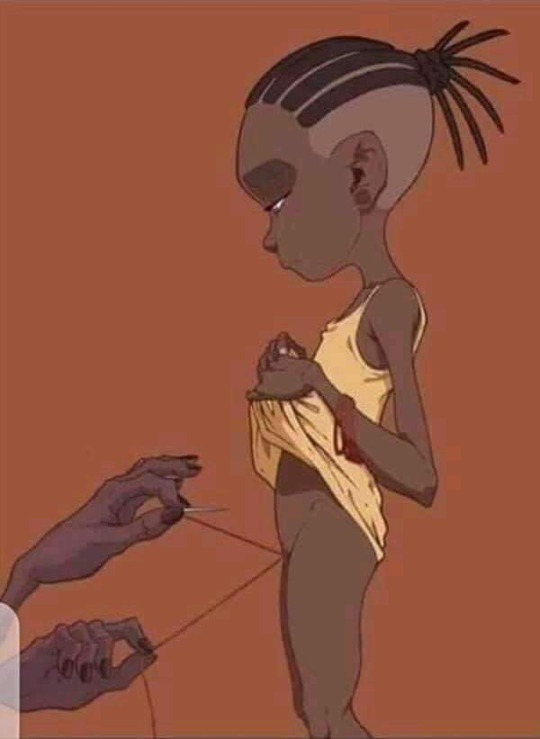

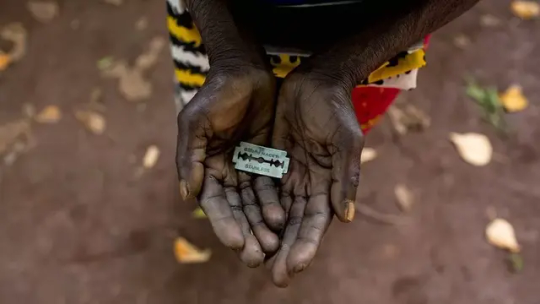
What is FGM, where does it happen and why? - BBC News This woman in Mombasa, Kenya shows the razorblade she has used on girls' genitals. By Eva Ontiveros BBC World Service
It's estimated that 200 million girls and women alive today have undergone some form of FGM, according to the United Nations (UN).
Although primarily concentrated in 30 countries in Africa and the Middle East, it is also practised in some countries in Asia and Latin America. And amongst immigrant populations living in Western Europe, North America, Australia and New Zealand, the UN says.
It is calling for an end to FGM on International Day of Zero Tolerance for Female Genital Mutilation on 6 February.
FGM can cause physical and mental health problems that go on to affect women in later life, as Bishara Sheikh Hamo, from the Borana Community in Kenya's Isiolo County explains.
What are the four types of FGM?
(695vid1) https://emp.bbc.com/emp/SMPj/2.50.2
"I underwent FGM when I was 11 years old," says Bishara. "I was told by my grandmother FGM is a requirement for every girl, that it made us pure."
But what Bishara did not know was that it would leave her with irregular periods, bladder problems, and recurrent infections. She was only able to give birth via Caesarean section.
She is now an anti FGM campaigner.
What is Female Genital Mutilation?
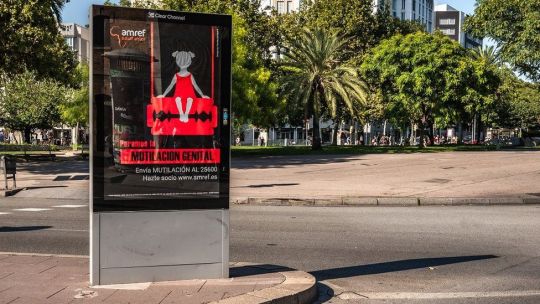
Unicef estimates more than 200 million girls and women have suffered FGM in Africa, Asia and the Middle East, but also within migrant communities where FGM is common - in Spain, 18,000 girls are considered to be at risk
Female genital mutilation, or FGM for short, is the deliberate cutting or removal of a female's external genitalia.
It often involves the removal or cutting of the labia and clitoris, and the World Health Organization describes it as "any procedure that injures the female genital organs for non-medical reasons".
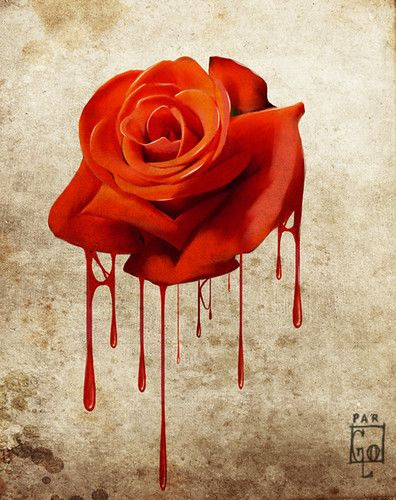
Omnia Ibrahim, a blogger and film maker from Egypt, says FGM is distressing and damages women's relationships and how they feel about themselves.
"You are an ice cube. You don't feel; you don't love; you don't have desire," she says.
Omnia says she has struggled with the psychological impact of FGM all her adult life. She says her community taught her "that a body means sex and that sex is a sin. To my mind my body had become a curse".
"I used to always ask myself: did I hate sex because I was taught to be afraid of it, or do I really not care for it?"
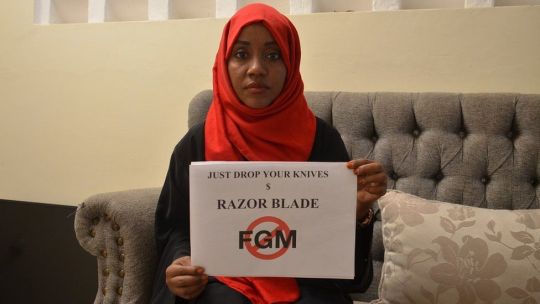
Bishara became an anti FGM campaigner after struggling to cope with her mutilation
In Kenya, Bishara told the BBC FGM was carried out on her, together with four other girls. "I was blindfolded. Then she [the cutter] tied my hands behind my back. My legs were spread open and then they pinned down my labia."
"Then after a few minutes, I felt a sharp pain. I screamed, I yelled, but no-one could hear me. I tried to kick myself free, but a vice-like grip held my leg.
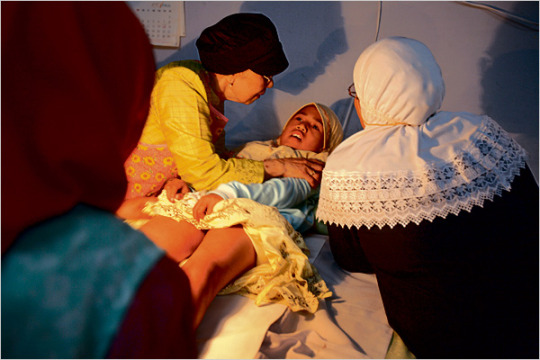
She says it was "pathetic. It's one of the most severe types of medical procedures, and so unhygienic. They used the same cutting tool on all of us girls".
The only pain relief available was a traditional remedy: "There was a hole in the ground, and they kept herbs in the hole. Then they tied my legs like a goat and rubbed the herbs on me. Then they said 'next girl, next girl,' and they took another girl..."
Although FGM it is illegal in many countries, it is still routinely carried out in parts of Africa, Asia and the Middle East - and also among the diaspora of those countries where FGM is common.

There are four types of FGM
Type 1: Clitoridectomy. That's the total or partial removal of the sensitive clitoris and its surrounding skin.
Type 2: Excision. The partial or total removal of the clitoris plus the removal of the labia minora, or inner skin folds surrounding the vagina.
Type 3: Infibulation. The cutting and repositioning of the labia minora and the labia majora - the outer skin folds that surround the vagina. This often includes stitching to leave only a small gap.
This practice is not only extremely painful and distressing, it's also an ongoing infection risk: the closing over of the vagina and the urethra leaves women with a very small opening through which to pass menstrual fluid and urine.
In fact, sometimes the opening can be so small that it needs to be cut open to allow sexual intercourse or birth - often causing complications which harm both mother and baby.
Type 4: This covers all other harmful procedures like pricking, piercing, incising, scraping and cauterising the clitoris or genital area.
Why does it happen?
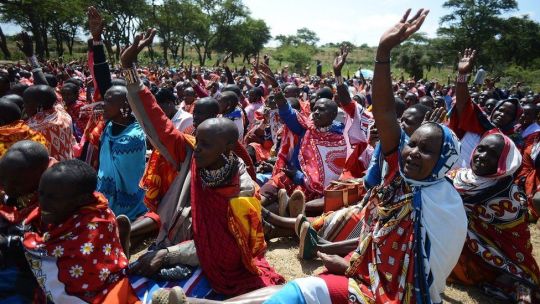
Some Kenyan Maasai women voiced opposition to a FGM ban because of fears that uncut girls would not be able to get married or become promiscuous
The most frequently cited reasons for carrying out FGM are social acceptance, religion, misconceptions about hygiene, a means of preserving a girl or woman's virginity, making the woman "marriageable" and enhancing male sexual pleasure.
In some cultures FGM is regarded as a rite of passage into adulthood, and considered a pre-requisite for marriage.
Although there are no hygienic advantages or health benefits to FGM, practising communities believe that women's vaginas need to be cut - and women who have not undergone FGM are regarded as unhealthy, unclean or unworthy.
Often it's performed against their will, and health professionals worldwide consider it a form of violence against women and a violation of their human rights. When FGM is inflicted on children, it is also seen as a form of child abuse.
Where is FGM practised?
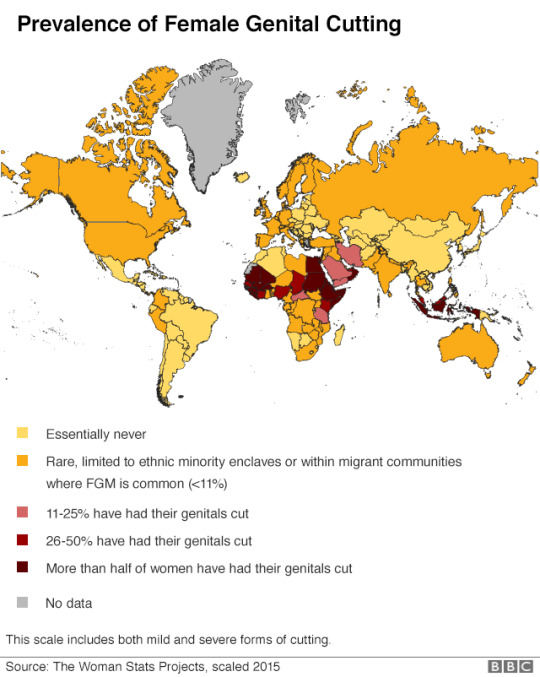
Many of the women surveyed by Unicef and the WHO said it was taboo to even discuss FGM in their communities for fear of attracting criticism from outsiders, or - in those places where FGM is illegal - for fear it would lead to prosecution of family or community members.

Therefore figures are based on estimates.
The above map was put together by The Woman Stats Project, who have collated research on the issue, including data from the UN and Unicef.
It is estimated by the UN that although FGM is concentrated in 30 countries in Africa and the Middle East, it is also practiced in some countries in Asia and Latin America. And amongst immigrant populations living in Western Europe, North America, Australia and New Zealand, the UN says.
According to a Unicef report carried out in 29 countries in Africa and the Middle East, the practice is still being widely carried out, despite the fact that 24 of these countries have legislation or some form of decrees against FGM.
In countries such as the UK, where FGM is illegal, expert and barrister Dr Charlotte Proudman says it is increasingly being performed on babies and infants. Therefore it is "almost impossible to detect" as the girls are not in school or old enough to report it.
Recently a mother in London became the first person in the UK to be found guilty of carrying out FGM on her three-year-old daughter. She will be sentenced on 8 March.
REF: 695
0 notes
Text
❤️ How to predict WHERE you're going to meet your future spouse through Astrology ❤️
hi guys! in today's post I'm going to show you how to find out where you'll meet your future spouse through your birth chart. this technique was discovered by the astrologer Kapiel Raaj, and it's based on vedic astrology. hence, you're going to need your sidereal birth chart to calculate this. if you already know how to do that, you can skip this part.
✨
first of all, go to astro.com > horoscope and then click on extended chart selection.

add your birth data by clicking on the 'add a new person' button. it's necessary to have your accurate birth time for this, as it's based on your ascendant.

then scroll down and click on options for zodiac and houses. choose the whole signs house system and then click on sidereal. after that, choose 'hindu/lahiri' on the ayanamsha button.
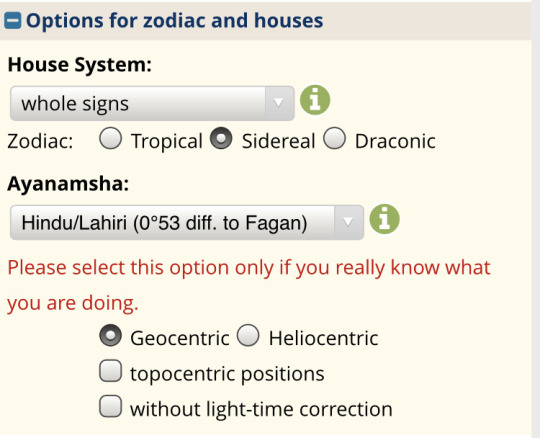
after you've calculated your chart, it will be something like this (this is angelina jolie's sidereal birth chart):
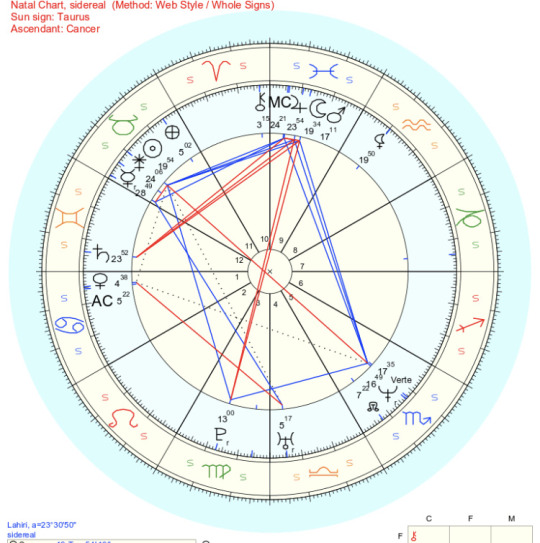
to calculate where you're going to meet your spouse, we need to first of all take a look at the 7th house lord, which is the planet that rules your 7th house. in this chart it is saturn, as she has capricorn in her 7th house. now that you know what is your 7th house lord, look at where it's placed in your chart. also, keep in mind that since this is a sidereal technique, we're only going to take in consideration traditional rulers, therefore aquarius is ruled by uranus, pisces by jupiter and scorpio by mars. angelina has her saturn in gemini in the 12th house. the opposite sign indicates the circumstances or directly the place where you're going to meet your spouse. in this chart, it is sagittarius. keep reading for an explanation of each sign!!
✨
♈️ aries opposite 7th house lord ♈️
you're going to meet your spouse when doing some sort of physical activity. you may meet them at the gym, or maybe at a sport event like a football match. you could even meet them just by taking a casual walk, and it could be love at first sight. you two may also meet in a place where there's lots of noise and action, maybe even danger, probably not in a quiet place. places that are ruled by aries are palestine, england, hong kong, germany, poland, syria, israel, lithuania, senegal, sierra leone and zimbabwe. as for cities, we have birmingham, cape town, leicester, florence, krakow, naples, utrecht, marseilles and georgia.
♉️ taurus opposite 7th house lord ♉️
taurus loves the finer things in life, so if you have this sign opposite your 7th house lord you may meet your spouse during your chill time. for instance, you may meet them at a spa, at the mall, at the beach... anything that symbolizes relax for you. in addition, taurus also rules finances, therefore you could meet them in a bank or in any place or circumstance where you have to deal with finances, even in a shop for example. also, since taurus rules over the throat and the voice, you may meet at a place where there's singing for instance, or at least there's music playing in the background. last but not least, being an earth sign, taurus opposing your 7th house lord may also indicate that you're going to meet your future spouse in a place where there's lots of green, maybe at the park or in a forest. places that are ruled by taurus are cyprus, tasmania, ireland, capri, rhodes, the greek iIslands, cuba, east timor, serbia, tanzania, south africa and yemen. as for cities, we have lucerne, eastbound, eastbourne, hastings, palermo, leipzig, st. louis and dublin.
♊️ gemini opposite 7th house lord ♊️
with gemini opposing your 7th house lord, you may meet your future spouse through socializing. you could meet them through your friends or through your siblings, maybe they're a sibling of a friend of yours. you could also meet them during short-distance trips, so maybe in a city near you or even on a train, on a bus, etc. communication is going to be involved, and hence you could even meet them at an event where there's the need to talk and / or write. possibly, you may as well meet him online or in school. places that are ruled by gemini include iceland, sardinia, morocco, belgium, wales, eritrea, guyana, kuwait, norway, montenegro, sweden and tonga. as for cities, we have nuremberg, tripoli, san francisco, london, melbourne, plymouth and cardiff.
♋️ cancer opposite 7th house lord ♋️
if cancer is opposing your 7th house lord, then you could have possibly known your future spouse since your childhood. you could have met a school, or to talk in a more general way you may be from the same city. possibly, you could as well meet in a place where there are children, or where there's food. in addition, since cancer is ruled by the moon, you could meet in a place where there's moon symbolism. maybe during a full or new moon. perhaps, you're going to meet near water as well, as cancer is a water sign. places that are ruled by cancer include usa, paraguay, scotland, holland, the bahamas bahrain belize, burundi, cape verde, columbia, comoros, democratic republic of the congo croatia djibouti, kiribati laos, liberia, madagascar, malawi mozambique, rwanda, slovenia solomon islands, algeria, somalia, and south korea. as for cities, we have manchester, new york, stockholm, tokyo, venice, york, amsterdam and milan.
♌️ leo opposite 7th house lord ♌️
with the sign of leo opposing your 7th house lord, you’re likely to meet your future spouse in a place where there’s fun. it could be at a party, during a vacation, at a bar, a restaurant... certainly not at work, that’s for sure. you’ll meet your spouse in a situation of relax, not of stress. since leo also rules celebrities, you may even meet them in a place where there are famous people, like a concert for instance. countries ruled by leo are afghanistan, india, italy, macedonia, romania, sicily, ecuador, zanzibar, bhutan, bolivia, central african republic chad, the ivory coast, gabon, indonesia, north korea, south korea, kyrgyzstan, malaysia, maldives, nicaragua, pakistan, mongolia, seychelles, singapore, ukraine and madagascar. as for cities, we have bristol, bombay, chicago, madrid, los angeles, philadelphia, rome and bath.
♍️ virgo opposite 7th house lord ♍️
virgo rules over health, and hence you may meet your future spouse in a health-related place. it could be at the doctor’s, at the dentist’s, in a hospital, etc. virgo is also routine, so you may meet your future spouse in a typical day of yours. it could be at the supermarket, at work, while you’re walking your dog, at the gym, and so on. basically, it could be that your future spouse is going to casually approach you in the streets. countries ruled by virgo include crete, brazil, greece, switzerland, turkey, uruguay, west indies, armenia, azerbaijan, belarus, brazil, costa rica, el salvador estonia guatemala, honduras, mali, moldova, qatar and tajikistan. as for cities we have athens, paris, toulouse, corinth, lyons, boston and mexico city.
♎️ libra opposite 7th house lord ♎️
if you have libra opposing your 7th house lord, you may get to meet your spouse in a place that has to do with beauty, so maybe in a clothes shop or at a salon. you may also meet them in a place where there are many people, or even at some sort of event like a marriage. libra also rules over politics and justice, so maybe you could meet them at the courthouse or during election time. countries that are ruled by libra include france, tibet, argentina, austria, burma, canada, china, japan, siberia, botswana, equatorial guinea, fiji, iraq, israel, lesotho, nigeria, palau, saint lucia, saudi arabia, tuvalu and uganda. as for cities that are ruled by libra we have lisbon, frankfurt, copenhagen, johannesburg, nottingham and antwerp.
♏️ scorpio opposite 7th house lord ♐️
scorpio is the sign of darkness, hence if you have it opposing your 7th house lord you may get to meet your spouse during nighttime. scorpio is also about sex, so this relationship could start off as a one night stand, or maybe you may meet in a place where sex is involved. you could also meet them in a place that has to do with death or where there's death symbolism, such as a graveyard (I hope not tho lol💀). you two may also be transforming yourselves when you meet, you could be starting a new chapter of your life to leave toxicity behind your shoulders. you could also meet at a place where you need to be naked, such as a beach or at the spa, or again in a place related to finances and money. countries that are ruled by scorpio include angola, morocco, queensland, korea, syria, norway, the transvaal, bavaria, antigua, barbuda, cambodia, dominica, latvia, lebanon, micronesia, panama, turkey, turkmenistan and zambia. cities that are ruled by scorpio include cincinnati, liverpool, newcastle, washington, vienna, baltimore and new orleans.
♐️ sagittarius opposite 7th house lord ♐️
sagittarius rules over foreign lands, so if you have it opposite your 7th house lord you're most likely going to meet your future spouse abroad. or perhaps, they are foreign and they travel to your country. you may also meet them in a place related to foreign culture, so maybe in a place filled with tourists, or perhaps in an exotic restaurant, perhaps at a sushi bar if you're not japanese for example. it may also be time for you for new experiences, perhaps you're doing something for the first time, such as trying a new sport or taking a plane. you may also meet your future spouse in college or in university, or in general in a place where there's teaching of any kind. last but not least, sagittarius is also a very spiritual sign, so you could meet them in a church, or maybe at an event related to religion such as a marriage, a baptism, etc. countries that are ruled by sagittarius include spain, australia, chile, hungary, saudi arabia, bangladesh, barbados, cameroon, kazakhstan, kenya, libya and mauritania. cities that are ruled by sagittarius include budapest, johannesburg, naples, nottingham, sheffield, sunderland, stuttgart and toronto.
♑️ capricorn opposite 7th house lord ♑️
capricorn is ruled by saturn, the planet of responsibilities, therefore if you have this sign opposing your 7th house lord you'll most likely meet your spouse on your workplace. perhaps they're your boss or a co-worker of yours, or maybe they may even be a customer of yours. you'll surely meet them later in life, when you're at least 27/28 years old, or perhaps when you manage to accomplish something really big in your life, not necessarily career-related. countries that are ruled by capricorn include india, bulgaria, mexico, great britain, albania, afghanistan, lithuania, bosnia, brunei, czech republic, haiti, nauru, slovakia and sudan. as for cities that are ruled by capricorn we have brandenburg, brussel, delhi, mexico city, port said, oxford and ghent.
♒️ aquarius opposite 7th house lord ♒️
you may meet your spouse in any place that has to do with electricity, for instance at a movie theater, at a theme park, at an apparel store, and so on. perhaps even on a public transport, such as a train, a taxi or a plane. also, since we're talking about electricity we can also count on internet, therefore if you have aquarius opposing your 7th house lord you have high chances of meeting your future spouse on social media, such as twitter, instagram, etc. or even through dating apps, such as tinder. last but not least, you may also be introduced to your spouse by your friends, or perhaps they could be a part of your group of friends. you may be both best friends and lovers, you would have a very playful and youthful relationship. countries that are ruled by aquarius include iran, finland, new zealand, russia, sweden, syria, ethiopia, the holy vatican city and sri lanka. cities that are ruled by aquarius include brighton, hamburg, helsinki, moscow, salzburg, st. petersburg and bremen.
♓️ pisces opposite 7th house lord ♓️
if you have pisces opposite your 7th house lord, you may first of all meet your future spouse near water. therefore you could meet them at the beach, at an aquarium, at the lake, at the pool, etc. perhaps even at a restaurant that serves seafood and fish, such as a sushi bar. pisces is also about alcohol, therefore you may also meet them in a bar or at a party where there's alcohol. pisces also rules over art and images, therefore you could meet them in a place where there are lots of pictures and paintings, such as a museum, or perhaps even at the movie theater, at a concert, etc. the club would be an option too, as it combines both alcohol and dancing, two pisces related things. also, it could be very late at night, when you're supposed to be sleeping, or perhaps, you're just sleepy or even drunk. last but not least, this placement usually indicates a soulmate or twinflame connection, therefore you may even meet your spouse first in the 5D than in the 3D, perhaps you feel spiritually connected to them even if you haven't met them yet. you could very likely dream of them as well. lastly, pisces is also about healing, so your future spouse may either work in the medicine field or maybe they're some sort of spiritual healer. you could possibly also meet them at the church or in a temple. countries that are ruled by pisces include normandy, north africa, portugal, samoa, egypt, Scandinavia, mauritius, morocco, namibia and tunisia. cities that are ruled by pisces include warsaw, alexandria, grimsby, jerusalem, bournemouth, seville and cowes.
and this is it! let me know in the comments where you're going to meet your spouse, and if you've already met them feel free to say if this post resonated with your experience!
follow me for more,
libramc xx
#astrology#astro notes#astro observations#astrology101#astrology notes#astrology observations#astro tidbits#astrology tidbits#birth chart#natal chart#vedic astrology#astrology spouse#aries#taurus#gemini#cancer#leo#virgo#libra#scorpio#sagittarius#capricorn#aquarius#pisces#sun#moon#rising#7th house#venus#mars
5K notes
·
View notes
Text
Chinese foreign ministers have traditionally marked the new year by visiting the African continent. Wang Yi’s 2022 African tour begins with Eritrea against the backdrop of the US strategy in the Horn of Africa to gain control of the strategically vital Red Sea that connects the Indian Ocean with the Suez Canal.
Eritrea and China are close friends. China was a supporter of the Eritrean liberation movement since the 1970s. Eritrean President Isaias Afwerki, the veteran revolutionary who led the independence movement, received military training in China.
More recently, Eritrea was one of the 54 countries backing Beijing’s Hong Kong policy (against 39 voicing concern in a rival Western bloc) at the UN General Assembly in October 2020.
Last November, Eritrea signed a memorandum of understanding with China to join the Belt and Road Initiative. Neighboring Djibouti is already a major participant in the BRI. So is Sudan along the Red Sea coastline.
Central to regional cohesion in the Horn of Africa is the relationship between Ethiopia and Eritrea. It has been a conflict-ridden, troubled relationship, but China, which also has close ties with Ethiopia, is well placed to mediate reconciliation.[...]
the politico-military axis between Ethiopia and Eritrea to take on the TPLF proved to be the decisive factor. China encouraged the rapprochement between Addis Ababa and Asmara.
In effect, the two leaderships understood that they have a congruence of interests in thwarting the TPLF, which is an American proxy to destabilize their countries and trigger regime changes.
Washington is mighty displeased that China’s influence in Djibouti is on the rise and resents that the Marxist Eritrean regime of Isaias Afwerki keeps the US at arm’s length.
The Horn of Africa is of great strategic importance, and Ethiopia sits at its heart. Destabilize Ethiopia and impact the whole region; install a dictatorial expansionist ethnocentric regime (TPLF); sow division and poison the atmosphere of mutual understanding and cooperation that is being built within the region – this is the neocolonial agenda. [...]
The widespread revulsion among Africans all over the continent is palpable over the US using its TPLF proxy to destabilize Ethiopia. Their collective cry is “No more” – no more colonialism, no more sanctions, no more disinformation, no more lies by CNN, BBC, etc. The cry resonates widely among the Ethiopians, Eritreans, Sudanese, Somalis, Kenyans and friends of Ethiopia.
The paradox is, Ethiopia now has a democratically elected government after decades of thuggery under the TPLF that ruled with an iron fist for more than 30 years with US backing [...]
In geopolitical terms, Washington would see many advantages in the destabilization of Ethiopia as it would trigger a multi-vector regional conflagration, as happens when multi-ethnic nations unravel – such as the former Yugoslavia or today’s India or Russia.
And neighboring countries would be inevitably sucked into ethnic wars such as Sudan, Eritrea, Djibouti, Somalia and Kenya – and even Egypt and Persian Gulf states.
The fact that the UAE, Turkey and Iran – improbable allies – are supporting Abiy’s desperate effort to preserve Ethiopia’s sovereignty and national cohesion and helped boost his military campaign to ward off another attempt by the US-backed TPLF to capture power speaks volumes.
In this matrix, while the US aims to dominate the hugely strategic Horn of Africa, “Plan B” will be to be the spoiler by throwing the region into turmoil so that China is also a loser. The point is, the Western world has no answer to China’s BRI.
China and Ethiopia have a strong political affinity and deep economic bonds, and Ethiopia is one of China’s top five investment destinations on the African continent. Beyond investment, relations extend to trade, infrastructure finance and other areas. Economic engagement with China has provided Ethiopia with many opportunities.
Curiously, even prior to the advent of the BRI, China was already a major financier of Ethiopia’s infrastructure. Chinese investment in the manufacturing sector – incidentally, one of the Abiy government’s focus areas currently – has contributed to the country’s economic transformation and diversification and to job creation. [...]
Simply put, if there is mayhem in Ethiopia, the locomotive of China’s BRI in the vast regions of the Horn of Africa and East Africa can potentially be slowed down, if not derailed. That is the least the US can do, faced with the grim prospect that it has no alternative offer to make to the African nations to counter the BRI.
If the BRI locomotive chugs along unimpeded, the entire Western neocolonial project in Africa in the 21st century is threatened with extinction.
The existential angst shows in the Joe Biden administration’s announcement on New Year’s Eve terminating Ethiopia’s access to the US duty-free trade program under the African Growth and Opportunity Act (AGOA) “amid the widening conflict in northern Ethiopia.”
7 Jan 22
56 notes
·
View notes
Text
FOREIGN CONSULTANCY AND INVESTMENT OPPORTUNITIES IN KENYA
Enolix Consultants Limited, a member of Enolix Group Of Companies, is a Kenyan based consulting company with broad work experience n offering the following services to both foreigners and locals. We have offered our services competently in countries like Kenya, Somalia, Ethiopia, Dubai, Sudan, Uganda etc
OUR CORE SERVICES 1. Immigration services into or outside kenya 2. Local and foreign company registration services 3. Business proposal and plans for financing purposes 4. Environmental impact assessment reports and audit 5. Accounting, audit and proper bookkeeping as recognizes by IFRS 6. Tax consultancy and advisory services 7. Marketing Research and strategy solutions 8. Real estate and property development consultancy
We have recently offered such services in the following sectors 1. The real estate development 2. Hotel and hospitality industry 3. Agricultural processing and manufacturing 4. Transportation sector 5. The mining sector 6. Financial/payment services sector 7. Retail and distribution 8. Information technology 9. Energy (oil and gas) sector Enolix Consultants has over 25 qualified staffs in each Department to handle these assignments Once engaged, we will deliver quality results at affordable costs Talk to us Looking forward to a fruitful working relationship into the future
Regards
CEO ENOLIX GROUP OF COMPANIES Elysee Plaza, 2nd Floor-Kilimani Road Kilimani Nairobi, Kenya Call/whattsap +254 725 384 521 +254 724 054 486 [email protected] www.enolixconsultants.com
1 note
·
View note
Text
Somali Bantu History
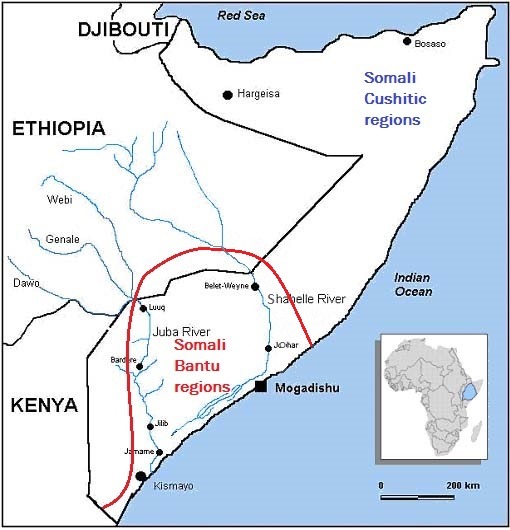
Introduction: The Somali Community is made up of various ethnic groups. The two majorities of Somalis are Cushitic and Bantu. These are the two largest ethnic groups. Other groups living in Somalia are Arabs and Italians, who are minorities. The Cushitic Somalis are split into several clans. For instance, we have the Darod and Hawiye clans, which form the Sab-Clans. Most Cushitic people live in the northern region, and some are on the southern side of Somalia. The main occupation of Cushitic Somalis is pastoralism — they spend most of their lives moving with animals. They speak the Maha, which is the official language. On the other hand, the Bantu Somalis occupy the Shebelle and Jubba river valleys, and most of them practice farming. They are culturally and ethnically different from the Cushitic Somalis. They also are split into several clans, and most of them reside in the southern region, an area that extends to central Somalia. Most of them are Zigua and Mai Mai speakers. When the civil war of 1990s broke out in Somalia, the Bantu Somalis have faced all forms of dehumanization. They feared the Cushitic Somalis, and that’s why they didn’t stand up to them. During the war, the Cushitic had taken everything from them. Many of the Bantus migrated to Kenya in the refugee camps. They applied for asylum in the United States. They were officially classified as “persecuted,” Then, the United States opened its doors in 2000 to settle many of the Bantus. Therefore, this research article seeks to outline the relationship between the Cushitic’s and Bantu Somalis in terms of (1) their differences, (2) their history, (3) The Ethio-Somali war, (4)how the civil war of Somalia in the 1990s began, (5) how the civil war affected Somali Bantus’ living state, and (6) a reflection on the Somali Bantu and Cushitic situation.
Somali Bantu and Somali Cushitic Differences
There is a significant difference in the two communities in Somali. There are significant ways in which the two communities differ, for instance, the aspect of origin, appearance, and economic activities. Somalia, one of the countries in East Africa, contains both the Bantus and Cushitic people. Although in one country, the two groups are different, significant ethnicities that use Somalia’s natural resources. Also, the population of Bantu and Cushitic Somalis has increased rapidly over the years. Still, cultural assimilation between the two groups is prevalent and prompts debates on the differences between them. However, irrespective of the assimilation in culture in the present day, they portray notable historical differences. Further, the two groups differ in their body size, appearance, economic activities, distribution, and social nature. In this section, each of these differences is discussed.
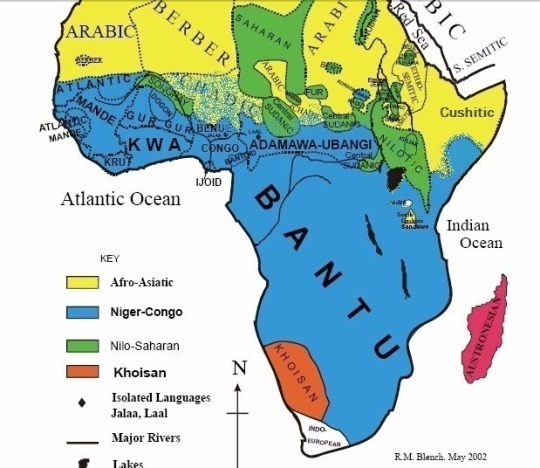
First, the Bantu and Cushitic groups differ in terms of their origin and distribution in Africa. The Bantus are composed of subgroups that originated in the Niger-Congo region and are primarily located in the tropical savanna climate areas. The Bantus mostly inhabit Western, Southern, and Central Africa, as well as some portions of Eastern Africa. On the other hand, the Cushitic people are composed of many subgroups, but they all originated in the Afro-Asiatic region. They are primarily located in warm desert climate areas and inhabit most parts of Eastern Africa. This reveals apparent differences between the two groups regarding their origin and distribution in Africa.
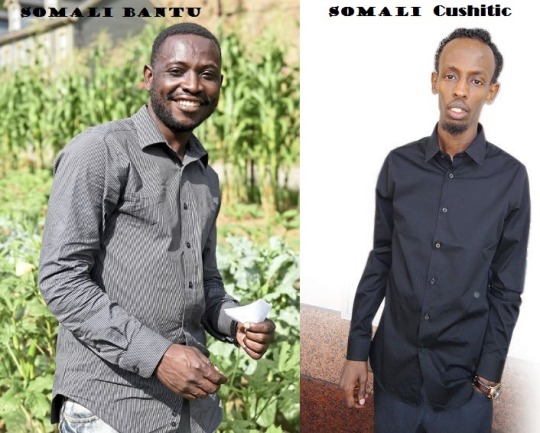
Second, Somali Bantus and Somali Cushitic can be differentiated based on their bodies’ physical structure and appearance. In general, Somali Bantus appear to have sturdier, more muscular physiques than the Somali Cushitic people. Somali Bantu men have healthy muscular bodies, while the Somali Cushitic people have weak, non-muscular bodies. Somali Bantus also exhibit a shorter body structure, while Somali Cushitic people have thin bodies with a taller body structure. Moreover, Somali Bantus have Afro-textured hair that naturally grows to medium length. In contrast, the Somali Cushitic people have thin, textured hair that typically grows to more extended lengths like Asian hair. Somali Bantus also differ from Cushitic Bantus in the physical makeup of their noses. Somali Bantus have a thicker, shorter nose structure, while Cushitic people have a thinner, sharper nose appearance. Therefore, foreigners to Somalia can use identifiable differences in physical body structure to differentiate between the Bantus and Cushitic Somalis.
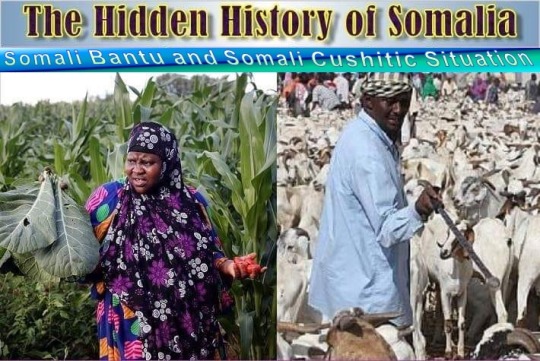
Moreover, Somali Bantus and Cushitic people differ in the types of economic activities practiced as well as their settlement regions. Though both groups reside in the same country, they utilize the country’s economic and natural resources differently. Somali Bantus are highly concentrated in the country’s southern region, particularly around the Juba and Shabelle rivers, characterized by cool and wet climatic conditions. Somali Bantus’ main economic activity is crop farming associated with minimal livestock keeping. Thus, the Somali Bantus are exclusively vegetarians. They rely heavily on the southern region’s conventional rainfall and water from the Juba and Shabelle rivers for farming activities.
On the other hand, the Somali Cushitic people reside in the Northern Somali region. The northern part is a semi-desert with hot and dry climatic conditions. The Cushitic people keep livestock on a large scale since it is their main economic activity. They are known for being nomadic since they move from one place to the next in search of water and pasture. The Cushitic people rely on products from livestock such as goats, sheep, cows, and camels. Thus, most of their food comprises animal products, particularly livestock meat. The difference in food types consumed by the Bantu and Cushitic peoples, therefore, explains the underlying differences between the physiques of the members of these two ethnic groups.
It should also be noted that the Somali Bantu and Cushitic people differ in their social nature. The Cushitic people have an inherently radical nature, while the Bantus are docile and peaceful individuals. Looking at the terms radical and docile, we see apparent differences in the social composition of the two groups. Radical pertains to people who over-express their feelings and appear violent at times, which is against human norms. Docile people are moral, rational, and take time to express their feelings. In terms of brain functioning, the Cushitic people are quick to act and are fast in decision-making with minimal thinking about the consequences of their decisions. Due to the irrational manner in which the Cushitic people deal with issues, they are more likely to engage in violence. In Somalia, ethnic attacks have become a norm among the Cushitic communities. Clashes are seen as part of life, though they cause suffering and pain. Cushitic people attack and harass other ethnic groups without viable reasons, especially when they see their weakness. The only reason they do that is to satisfy their heartless nature.
On the contrary, Somali Bantus take time to make their decisions. They are more analytical than their Cushitic counterparts. Due to the logical way of thinking, they hardly engage in violent behaviors. While they may not be as fast as the Cushitic group in their thinking patterns, they quickly develop trust in other individuals. At times, the Cushitic people take advantage of their logical thinking. Moreover, the Bantus are rigid in their way of life. Hardly do they accept change in their social behaviors. In general, the Bantus are peaceful in their way of life; thus, they may appear naïve to the outgoing Cushitic group.
Thus, Somali Bantus and Cushitic peoples differ in physical body structure, economic activities, and social nature. Cushitic people have a weaker body physique than the Bantus due to the different work performed and the different types of food consumed by the two groups. Somali Bantus practice crop farming as their main economic activity, while the Cushitic people are nomadic pastoralists. Bantus are peaceful and analytical in decision-making, while the Cushitic people are quick to make decisions and willful.
Somali Bantu and Somali Cushite History
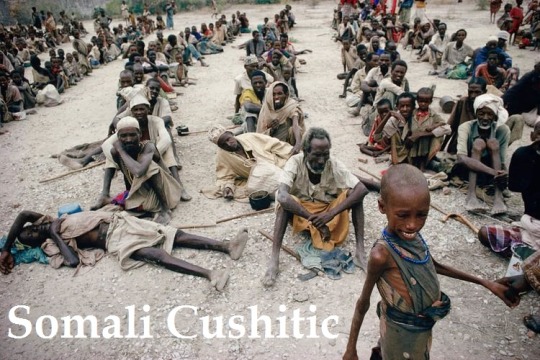
There is an interesting history of the Bantus and the Cushitic people in Somalia. For centuries, the Somali Bantu and the Somali Cushitic lived in Somaliland harmoniously. At the time, they lived in different regions. The Bantu occupied the southern part of Somalia, while their counterparts, the Cushitic group, occupied central and northern Somalia. The land was peaceful, as no group interfered with the affairs of the other. Still, each group defended their territory and could even help one another in times of need. In their subgroups, they governed themselves for many generations. However, a time came when a group of Cushitic people visited the Bantu southern region searching for food. They looked weak, thin, starved, and tired, as they had walked for a long distance without food. Due to their state at the time, the Bantus did not realize that the Cushitic group could be dangerous. Thus, after the Cushitic members had expressed their needs, the Bantu, out of their generosity, decided to offer help. They gave them food and shelter as they sympathized with the sickly state of their visitors. The Cushitic gladly received a warm welcome. Nonetheless, the Bantu only adhered to their moral practice of welcoming those who needed their help and forgot to be cautious when dealing with strangers whom they did not fully understand. Henceforth, the Bantu and the Cushites started living together. The Bantu shared their resources with the Cushites and made sure that they were well fed. As a result, the Cushites became established in the Bantu region. The Bantu invited a bitter enemy into their region out of their generosity.
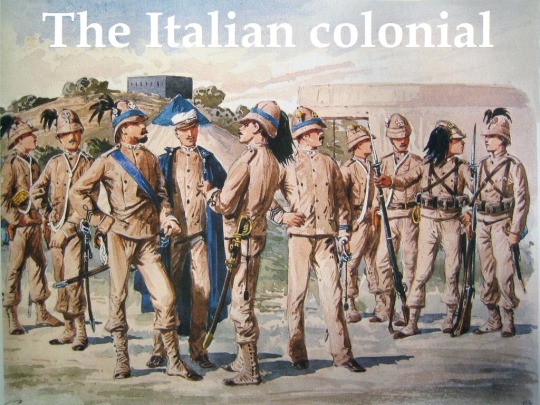
Many years later, Italy colonized part of Somaliland and took control of the two regions occupied by the Bantu and the Cushitic groups, which was the genesis of the Bantus’ problems. The colony built many schools in the Bantu and Cushite area, and the Cushites who were living in the Bantus’ areas used to warn them not to go to school while the Cushite children were in school. When the Bantus asked why, one of the justifications the Cushites gave was that the schools’ teachings were based on the Christian faith and would lead their children away from the Islamic faith. The Cushitic people acted as if they cared for the Bantus while lying to and deceiving them. Their situation was just like the prophet Adam and the Devil’s story. The Devil told Adam to eat from the tree that would make him immortal, acting as if he cared about him. This same misconception misled many Bantus. As a result, many of the Bantus never acquired formal learning. They remained illiterate while the Cushites educated their children. As the colonizer left the colony, it was granted independence. However, the chosen leader came from the Cushitic group.
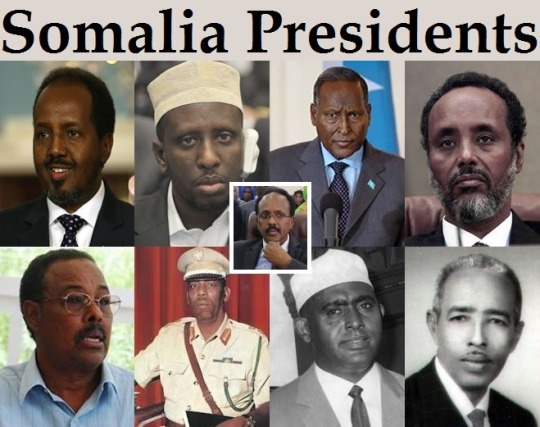
The government was transferred to the Cushite people after the colonizers left the colony. The Cushite-led government wanted nothing to do with the Bantus since the government is in their hands. Thus, constant conflicts emerged between the two groups, as the Cushites often acted against the Bantus. The Bantus let the Cushitic group lead the country in their desire for peace to prevail in the region, and they started sending their children to government schools. That, however, did not improve the situation. The government continuously discriminated against and deceived the Bantus. For instance, when the Bantu’s children graduated from high school, the government gave their diplomas to Cushites who had not graduated, and then transferred them to other countries. There are so many Bantu children who finished high school but have no diplomas. The government did so to kill the Bantu’s hope in the country. In this way, the Bantu people will never have opportunities to join the government. Therefore, the Somali-led government that was given the Italians’ reins started discriminating against and deceiving the Somali Bantu.
In conclusion, the historical record shows that before the Italians invaded Somalia during the colonial era, the area of Somalia was separated into two different geographical regions, each occupied by Bantus and Cushitic communities. During this period, the Somali Bantus enjoyed control over the southern part of Somalia, and the region flourished in peace. When the Cushitic people from Ethiopia and Northern Somalia arrived in the Bantu southern region, the Somali Bantu welcomed them with open arms and without any caution. Following the emergence of the Italian colonial control of Somalia, they accepted that the two areas be combined, and the Bantus let the Cushitic people control regions. That produced catastrophic consequences, as the Cushitic-led government instituted oppressive, discrimination, and corrupt governance. Therefore, the harsh and unfriendly treatment of the Somali Bantus stems from a mistake made by their ancestors before the colonial era. That teaches us to be cautious even as we welcome strangers, as they may turn out to be traitors.
The War between Somalia and Ethiopia in 1977
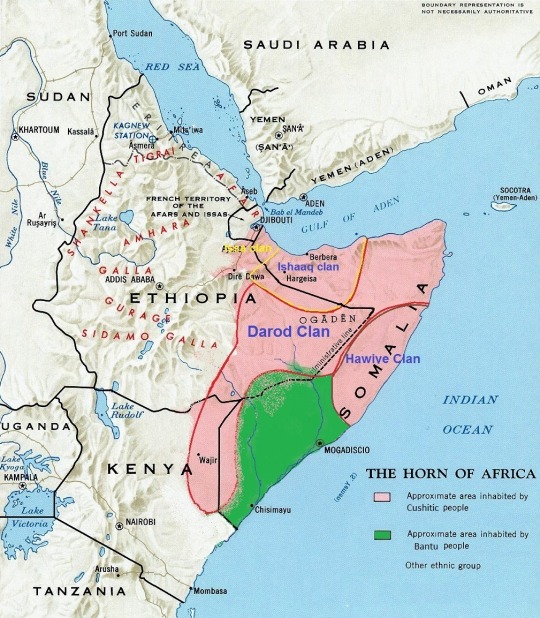
In 1977–1978, there was a war between Somalia and Ethiopia. This war was called the Ogaden war or the Ethio-Somali war. This war was a result of Ethiopia and Somalia fighting for a region that was between them. The area was known as the Ogaden Region. Below is an explanation of how the whole war was and the result of the war. Upon Siad Barre becoming the president of Somalia, the war started between Somalia and Ethiopia. Siad Barre used the Somali Bantu children in the war to fight the Ethiopians, especially on the front lines, while his clan was in the back. The cause of this war was to protect the sub-clans where Siad Barre originated. The Somali Bantus’ population decreased at a very high rate after Siad Barre became president, even though they still had children just like the Cushites. This was different from the Somali Cushite people, whose population increased since they did not participate in the front line in the war.
To understand more about the Ogaden war, we need to understand what led to the Ogaden war. The Cushitic Somalis are split into several clans, the same as the Bantus. For instance, we have the Darod clan, which also form sub-clans. The Darod clan was one of the largest sub-clan among the Cushitic ethnic group, and still, it was divided into three groups; the Darod of Somalia, Ethiopia, and Kenya. In 1977, Ethiopia and Somalia were absorbed in a colony dispute over the Ogaden region. The region was located between Ethiopia and Somalia, and so the two nations claimed the area to be theirs. The difficulty in the war was that big powers supported both of the states, which could bring the Cold War to Africa. This notion of the Cold War in Africa was very sound because the Soviet Union financed Ethiopia, while the United States financed Somalia. To conclude, this war was very tricky, and if care was not taken, it could extend to the other parts of Africa. If this war continued, then the notion of the Ogaden war bringing the Cold War in Africa would be proved right.
It is good to understand whether, before the war started, there disputes were between Ethiopia and Somalia in the past. According to research, it is clear that before the Ethio-Somali war started, there were disputes about the Ogaden region. Due to the Second World War, when Ethiopia had lined up with the Allies in opposition to the Axis powers, Great Britain renounced its claims on the Ogaden region as a fragment of the British Somali land. Besides, once the British Somali area became a fragment of Somalia’s new independent state in 1960, the government had no option than to control the region. Afterward, there was intensified monitoring of the area when a military coup in Somalia led to the killing of the Somali president Abdirashid Ali Shermarke. Then, in 1969, the military under Siad Barre seized control of the state of Somalia. One could tell that things were not getting any better.
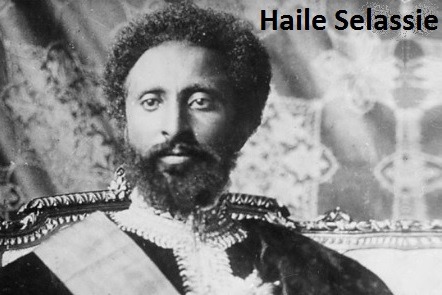
To better understand the situation, it is also good to know what was happening in Ethiopia when things were not right in Somalia. In this period, the longtime emperor of Ethiopia, Haile Selassie, was displaced in September 1974 by the defense force known as the Derg. This led to the disorganization of the Ethiopian nation, leading to the emergence of many separatist movements that were opposed to the Derg due to uncertainties in Ethiopian politics. Surprisingly, one of those groups, called Western Somali, was staying in the Ogaden region of Ethiopia. The same group asked for the takeover of the territory they controlled in Somalia. To conclude, it was the beginning of another dispute between the Somali natives in the Ogaden region with the Ethiopian natives.
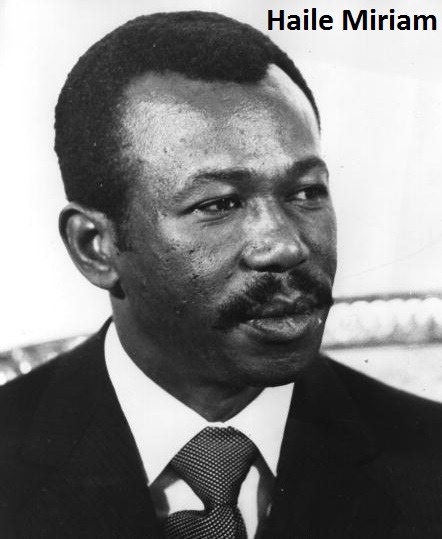
Before entering the real war, we have to understand what was happening to the Derg. So, in 1977, Haile Miriam had become the Derg leader, who was in the custody of the whole of Ethiopia. Due to these privileges, the Derg suppressed all the Ethiopians and, to be specific, the Western Somalia Liberation Federation (WSLF) and its supporters. Thus, there was more emphasis on the notion that there was a Cold War in Africa. By this particular time, the Derg had made Ethiopia a communist state and allied it with the Soviet Union. Allying it with the Soviet Union meant that now, the Ethiopians had funds to deal with Somalia since the Soviet Union would fund them.
Since the Somali government had obtained large quantities with Soviet help, they provided the Western Somali Liberation Federation with weapons. So, in July 1977, Somalia’s government army took thirty-five thousand armed men commanded by Mohamed Siad Barre. These Somali militaries were also supported by fifteen thousand military men from the Western Somali Liberation Federation. Together they invaded the Ogaden region, but unfortunately, the Army of Somali was outnumbered by the Ethiopian army. To their advantage, they had superior weapons because of earlier support from Soviet military donations. This was a clear alarm of a cruel war.
Moreover, the Soviets were also providing their newfound Ethiopia with funds and even weapons. After they were unsuccessful in getting a suspension in fighting, they gave all their aid to the Ethiopians by bringing fifteen thousand men from the Army of Cuba. Similarly, there were volunteers from other communist nations, Yemen, and South Korea. On the other hand, the people of Somalia had gotten aid from the United States. Given that now the two states were aided by supreme powers, the war escalated.
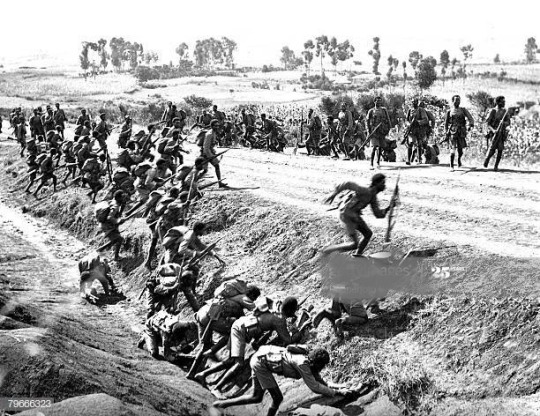
Lastly, there came the war where the fittest would survive since there was aid from supreme powers on both sides. When the war started in 1977, the Ethiopians had control of about ten percent of the Ogaden region. Since the Ethiopians received Soviet aid more often, they were able to overpower the Somali Army and their helpers, the Western Somali Liberation Front allies. In October, the Somali Army tried their best to be hostile to acquire the Harar city of Ethiopia. Unfortunately, they were faced by forty thousand militaries from Ethiopia and eleven thousand armed men from the Cuban Army who aided them. Soviet weapons and air forces also supported these Cuban troops. As stated above, the Ethiopians outnumbered the Somalians, and so they were able to push the Somalians out of the Ogaden garden without force. By March 1978, the Ethiopians had taken almost the whole Ogaden region. Now, the Somalians had been defeated, leading them to surrender their fight for the area. This is how the Ethiopians ended up having the Ogaden region in their name.
The Ethio-Somali war was the start of the Somali Bantu genocide. This is because Siad Barre was forcing Somali Bantu boys aged fifteen and up to join the war for free so that he could save his clan in Ethiopia. Concerning this, the Somali government had not shown the Somali Bantus how to fight. The only thing they taught them was shooting, and then they sent the poor Bantus to war. In the war, Siad Barre put the Somali Bantus on the front line, and then his fellow Cushites were at the back. This is a clear illustration that the probability of the Somali Bantus dying was very high. When the Bantus saw how their community was dying, they started running away, but in return, the Cushites were shooting them and telling them not to run away but fight for their country. There were very many Somali Bantus that died in this war. The Ethiopian army killed most of these Somali Bantus, and their fellow Somali people still killed some of them. This shows how Somali Cushite people were selfish and did not even care about their fellow Somali Bantus.
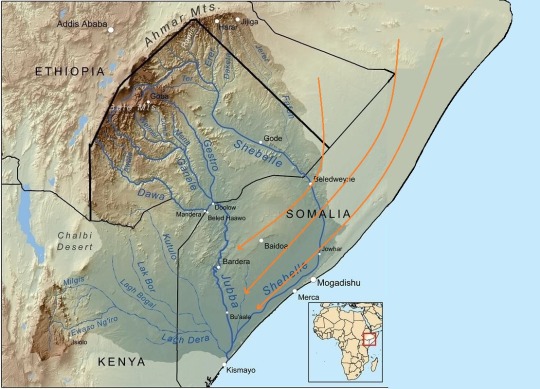
Even with these efforts, the president of Somalia did not succeed in taking the Ogaden region. Ever since former Somalian president Siad Barre lost the war with Ethiopia, one of his aims had been to seize the Bantu land for his people. Before Siad Barre, all other former presidents of Somalia were against the Somali Bantus, but they had never thought of erasing them from Somalia. Siad Barre was the first president who thought of seizing their land for his clan, and all other presidents after him have followed in his footsteps. Siad Barre divided the Somali Bantus and created disunity and hatred among them. After dividing the Bantus, Siad Barre started to resettle his sub-clans in Southern Somalia, giving them full control over Bantu land. The Bantus were not in control of their own villages, towns, and cities, let alone the capital. The Bantus controlled nothing in their own region; everything was given over to the management of the Cushitic people, especially those from the presidential sub-clan. The southern region belonged to the Bantus, but Siad Barre wanted to acquire it for his people because the land was very fertile. His general, Farrah Hassan Aidid, who was of the same Cushitic ethnicity but of the Hawiye sub-clan, began to notice the president’s plans and wanted a share for his own sub-clan, but Siad Barre refused to share the land. When the general realized that the president didn’t want to share with him in the deal, he started thinking about how he could take Siad Barre’s position. This was how the division of Somalia began until they eventually destroyed the entire country.
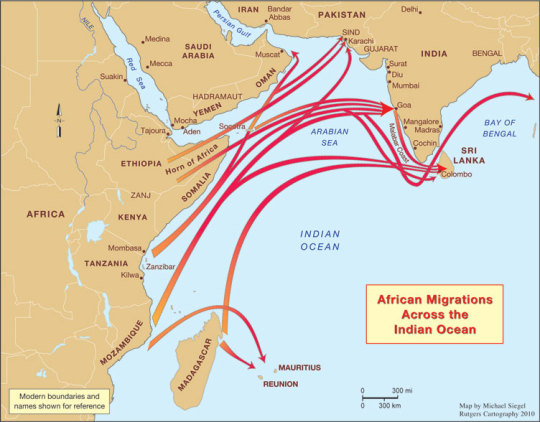
It should also be noted that the Cushitic people used numerous myths to justify their claim over the Bantu land. Before we look at the myths, it is essential to point out that the Cushites living with the Bantus in southern Somalia originated from northern Somalia and Ethiopia, the Ogaden region. Some of them had been exiled from Ethiopia for spreading violence in their localities. When the Bantus welcomed them, and the Cushitic people took many advantages and treated their kindness as a weakness. With this understanding of the Cushitic, we now look at the myths they perpetuate. First, the Cushitic people have written many books and articles posted on the internet. The books demean the Bantus and fail to explain that the Arabs and the Bantu used to trade together. Further, the writings are not categorical that the Arabs only used to steal the kids from both the Cushitic and Bantu groups and sell them to the Middle East and India. Neither do the writings state that the Arabs did not steal people from Tanzania or Mozambique and bring them to be slaved by the Cushitic people. The real question is, why would the Arabs, who were prosperous and civilized for many centuries, waste time to steal people for the inferior and uncivilized Cushitics when they could sell their slaves to rich people who were civilized? In the writings, the Cushitic people used perpetual deception to subjugate the truth.
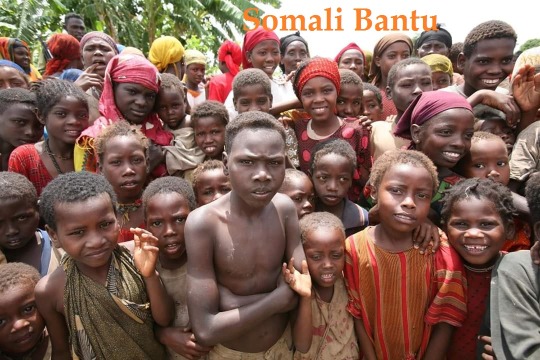
Other myths are the use of slavery to justify their unfair treatment of the Bantus and giving of wrong statistics; the Cushite was very unfair. Concerning the statistics, the Somali Cushite always gave the Bantus wrong statistics because they wanted to do away with them. Their statistics stated that the Bantus had approximately one percent population, while the Somali Bantus population was forty to fifty percent. This percentage was very wrong, and I wonder why the Cushite followed these tricks only to grab land and have power over the Somali Bantus. These myths were made to lie to the world and give the Somali Cushite a leeway to justify their claim over Somalia. This was a very negative way of doing things, and no one should emulate the Somali Cushite.
In conclusion, my opinion is that the Ogaden War was a big war, but there had to be a winner, just like any other war. In the Ogaden War, it is clear that the Ethiopians had it right and thus could gain the Ogaden region to their name. Moreover, the Ethiopians proved to be more prepared for this war than the Somalians. Lastly, another opinion is that this war brought the Cold War to Africa, which is true. This is because there was an intervention of supreme powers that tried to intimidate each other with their abilities. The Bantus proved to have a lot of influence in the Ethiopia–Somalia war, more so than the Somali Cushites. If anyone should have been greatly rewarded, it was the Somali Bantus. Unfortunately, Siad Barre was against them and thus used his authority to suppress them to the weakest point possible. This is an act that everybody in the world should condemn, and unity should be preached instead of disunity.
How the Civil War of Somalia in The 1990s Began
Somali has undergone various civil wars in its history. Most civil wars have political underpinnings, as politicians usually spread hatred and animosity among the citizens to the point that a simple issue could result in a big fight. A good example is the American Civil War of 1861–1865, which arose due to the difference in opinions regarding slavery. Another case was in Kenya (2007��2008) when the citizens differed on the outcome of the 2007 election. Somalia’s case was not any different; the war began as resistance against President Mohamed Siad Barre. With time, it grew more prominent and, thus, affected many people within the country. The war was supposed to be between two Cushitic sub-clans, Darod and Hawiye, but it ended up affecting the Bantus the most.
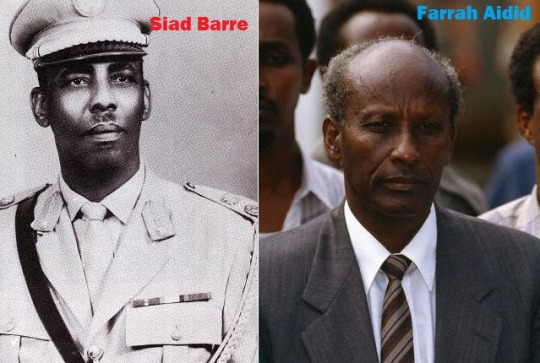
It is noteworthy that tribal underpinnings often influence African countries’ politics. For example, Mohamed Siad Barre, President of the Somali Democratic Republic between 1969 and 1991, fell into a similar trap. He was a member of the Cushitic group and belonged to the clan of Darod and Rer Dini. President Barre could be said to be among the worst dictators the world has seen. He massacred many people in the name of tribal affiliations. His general, Mohamed Farrah Hassan Aidid, was also a Cushite just like him, but from the clan of Hawiye and Habar Gidir. The Darod and Hawiye clans are the two main powerful sub-clans in Somalia. Thus, President Barre’s ascension to power was based on his tribal affiliation and not on his ability to lead the Somali people.
Most politicians cling to power even when people do not like them. For example, President Barre began to make plans to retain power while he was still the president. He intended to turn Somalia into a monarchy, where a member of his sub-clan could inherit power after his death. His general requested that he replace him, but President Barre refused. Instead, he embarked on resettling his people among the Somali Bantus as a strategy to secure the Bantus’ fertile land for them. Meanwhile, General Aidid secretly trained the military to fight against President Barre. The president got to know about the ongoing training when it was too late to counter it. Therefore, he fled the country, telling his people to prepare for a civil war. Barre attempted to cling to power, although he lacked the support and goodwill of the Somalis.
Initially, the war seemed to be between two clans. The president’s clan members fled from their homes and hid in the Bantus’ area because they were not prepared for war. The Hawiye clan was ready, and it started pursuing the Darod clan. Eventually, it discovered that the members of the Darod clan were hiding in the Bantus’ area. The Hawiye clan went to the southern region and massacred the members of the Darod clan. It also committed other atrocities. For instance, the Hawiye clan members repeatedly assaulted the Darod women in daylight in front of the Somali Bantus. The Darod clan members ran, but they had nowhere to hide from their rivals. The Somali Bantus did not engage in the war at the time, and the Darod clan collected all their guns. However, they forgot to retain some of the guns for their defense against attacks. Thus, it seemed like a war between the Darod and the Hawiye.
As the civil war between the Hawiye and the Darod clans escalated, the Bantus were accused by the Hawiye of being accomplices of the Darod. Thus, they mercilessly massacred them. They assaulted the Bantu women just as they had done with the Darod women. While the Hawiye Clan were busy with the Bantus, the Darod clan regrouped themselves and returned for their revenge. The Darod clan started attacking the Hawiye Clan until they ran back to Mogadishu. After the Hawiye retreated to the capital, the Darod clan members continued fighting the Bantus, who were defenseless at the time. They accused them of failing to assist in fighting against the Hawiye clan. As the war continued, many Somali Bantus lost their lives since they were on the receiving end in the long run.
Thus, the Somali Civil War was supposed to be a war between the Hawiye and the Darod clans. Still, the Somali Bantus ended up suffering the most compared to Somali Cushitic ethnic groups. The aftermath of the conflict was extremely brutal. Through the war, the Bantus underwent severe suffering, a violation and abuse of human rights at the hands of the Hawiye and Darod clans. The genesis of the war was the power struggle between President Mohamed Siad Barre and General Mohamed Farrah Hassan Aidid. The general wanted to dislodge the president from power, but the latter refused to leave the office. Therefore, their respective sub-clans turned against each other. Somali Bantus only got involved due to their perceived association with both clans, each accusing them of being an accomplice to the other.
How the Civil War Affected Somali Bantus’ Living State
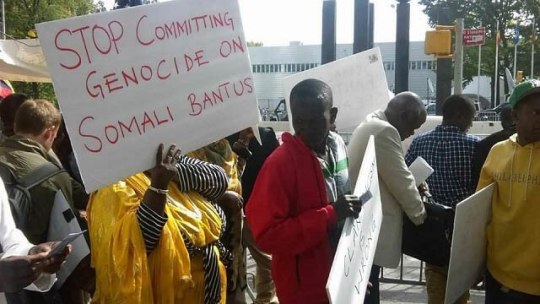
Somalia, a country in the African continent, has been consistently presented by the media as full of mysteries. Two such significant groups living there are the Somali Bantus and Somali Cushites. The Bantus are the ethnic group living in Somalia who have been deprived of their fundamental rights. The historical record shows that the Cushitic-led government had plans to wipe out the Somali Bantus from the land completely from the beginning. Although the plan failed, the Bantus went through some of the dehumanizing acts that fit the definition of genocide. The damages he caused the Somali Bantu people affected them mentally, and it also caused significant damages to their offspring’s future. The vast majority of Somali Bantus were being harassed and assaulted by the Cushitic people. Every family member of the Somali Bantus was affected by pain during wartime because each of them had one or more of their family members either killed, raped, or tortured. Their properties were also looted. Ultimately, although the Bantus suffered in the war, the impact would have been worse if Siad Barre were in power.
The Siad Barre government used a disguise to achieve its evil plan. First, the government called for peace, and the Bantus were commanded to surrender their weapons to the government. That was a plan to disarm the Bantus’ citizens while not doing the same to the Somali Cushites. At the time, the plans awaiting the Bantus’ people by their government were not within their knowledge. From the look of things, President Mohamed Siad Barre and General Farrah Aidid, the Somali warlord and militia leader, both disregarded the Somali Bantus. The Somali Bantus went through humiliation by both the government and rebel groups. While it is an obligation for heads of state to protect the lives of their citizens, in the case of the Civil War of Somalia, President Mohamed Siad Barre is believed to have engineered the war. At last, the plan failed after Siad Barre ran away from the country. Instead, his clan, the Darods who were at the center of the war, gave a lifeline to the Somali Bantus. However, the Bantus were honest about their actions, and they received their fair share from Allah, whereas the two thrives of Somalis received what they deserved. It was through Allah’s mercy that the government’s evil plan did not succeed. It establishes that deceivers will never achieve their plots, and they always end up as losers.
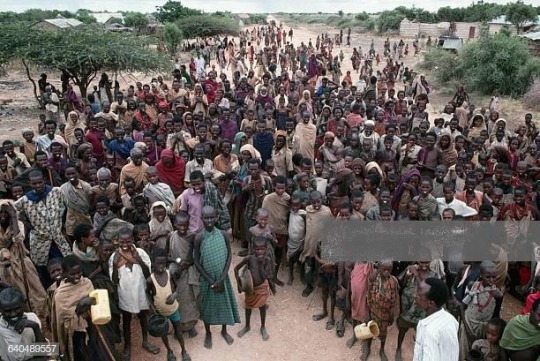
The Somali Bantus faced many physical attacks while in the country. They suffered racial discrimination since they were different in appearance to their Cushitic counterparts. They were harassed in various ways such as killings, sexual assaults (especially on women), and looting of their properties. As the situation worsened, the Somali Bantus were exposed to severe suffering. The only way out for them was to vacate their premises and look for other places to shelter their families. Thus, many Somali Bantus left their homes in Somalia and headed for the Kenyan border. The journey was long and took two to four weeks. Many of them died on the way due to hunger, and wild animals killed some. The only food available to them on the way was tree leaves. They relied on rain to provide water for cooking and drinking. However, the water they used was muddy and harbored diseases. They overcame numerous maladies, like malaria and others, which spread all over Somalia. There was a quota for Bantus in the Kenyan healing centers. Many Somali Bantus succeeded in reaching Kenya, but they faced many hardships during this journey.
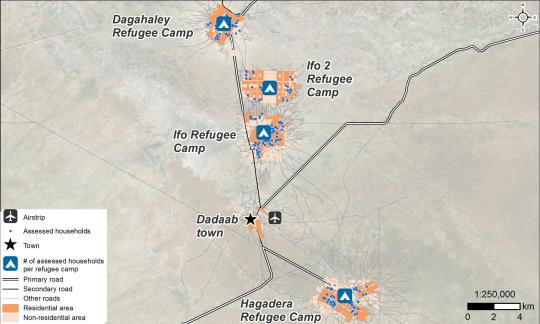
Even in the United Nations camps, the Somali Bantus were treated with disdain. In 1991, a significant portion of the Somali Bantus and other Somali Cushitic peoples gathered in the UNHCR refugee camps called Dadaab. The UN divided them into three distinct camps, known as Ifo, Dagahaley, and Hagadera. The reason was that they were too many to fit into one place. The Somali Bantus settled down and expected to find peace in the United Nations camps. However, after several years in the camps, similar issues to those they had faced in Somalia emerged. There were rampant cases of theft and sexual assault on women. These crimes usually happened at night and also when the Bantu women went into the woods to gather firewood. The Somali Cushitic clans perpetuated the animosities in the camp against the Somali Bantus. It reveals that the Cushitic people held a deep hatred for the Bantus to the extent that they continued attacking the latter in the camps. Thus, the Somali Bantus faced many security issues in the United Nations camps.
Indeed, the physical attacks on the Somali Bantus did not stop when they left Somalia. When the sexual assault and harassment kept on expanding in the refugee camps, the camps’ chieftains decided to solicit aid from the UNHCR. The leaders of the camps, who presented the Bantus’ grievances, wanted the Commission to provide them with security by relocating them to a safer place. The Commission’s authorities in the camps, to the surprise of the Bantus, dismissed their request for relocation. The dismissal of their petition prompted the leaders to go the extra mile and contact the Australian authorities through a memo, which failed. The Bantus then reached out to the US authorities. In 1998, the Bantus’ hopes were restored, and the US government addressed their grievances. The government reached an agreement, helping to resettle around 12,000 families of Somali Bantu refugees. The United States of America made history since it had never before resettled such a vast number of refugees from Africa. The US identified the Bantus in Somalia as a continually suffering community prone to physical abuse and racial discrimination.
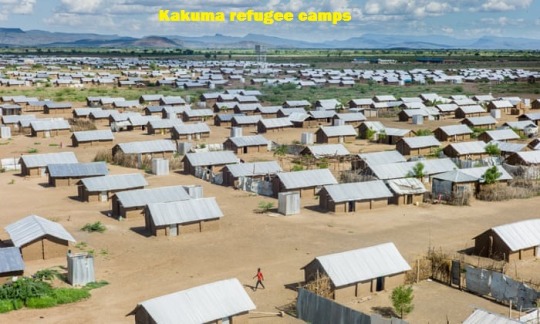
The US government agreed to give shelter to many Bantu, a move that was unexpected by the Cushitic Somali community. When the Cushitic people heard the news, they were shocked at first, and then they tried to convince the Bantu not to go to America. When the Bantu asked why, the Cushitic people’s reply was that it’s a Christian country, and it would lead their children away from the Islamic faith. The Bantu didn’t listen to them the second time because they didn’t want to end again in the same hole the Cushitic people trapped them before. When they saw the Bantu were eager to go to America, the Cushitic people started making a truce with the Bantu. They implored the Bantu to intermarry with them to have the opportunity to leave for the United States. However, the Bantu, who were determined to take advantage of the opportunity to get away from the Cushitic group and start a new life, rejected the offer. The rejection of the proposal prompted the Cushitic people to plant bombs in the streets, protesting the United States’ decision to allow the emigration of the Bantu. The International Organization for Immigration (IOM) had to step in to control the violence. That culminated in the settlement of the Somali Bantu into another Kenyan camp. In 2000, one major camp created for this relocation was called Kakuma. The Bantu were to stay in the camp for three years before their departure for the US. This move by the IOM was inconvenient for the Somali government because the government could not explain the departure of the Somali Bantu. In particular, the government of Somalia was locked out of the planned departure of the Somali Bantu to the US.
The civil war in Somalia in the 1990s played a significant role in shaping the lives of Somalia’s following generations; it affected the future population of the Somali Bantu people the most. The poor conditions the Somali Bantus faced after the war culminated in their quest for liberation. The Bantus were physically discriminated against due to their differences. Their appearance marked them as very different from their counterparts. Through their leaders, the Bantus sought help from various European authorities, to no avail. After contacting the US authorities, they finally got help. Though the aid came at a cost, the Bantus settled in Kenya at the Kakuma camp, where they waited for their departure to the United States. The hardship the Bantus faced gave them the strength to pursue their freedom.
Reflection on the Somali Bantu and Cushitic situation
The article I have presented highlights various situations of the Somali Bantu and Cushitic communities. Ideally, I have described an accurate and detailed exploration of why the Somali Bantu people remain a top secret of the Somali government. I have assessed the poor conditions of the Somali Bantu people after the civil war. Further, I have conducted an in-depth analysis of the efforts they made for their survival throughout the period. I intended to evaluate their strength; I admire their patience, tranquility, faith, resilience, and courage to face all their hardships. The story of the Somali Bantu informs us that difficulties in life can be overcome. Whenever we see people facing myriad challenges in their life, we should realize that God has the power to turn challenges into an opportunity. We should treat others with respect and dignity. We should not be part and parcel of corrupt dealings or participate in demeaning other human beings’ lives. Most importantly, we should pursue peace and not condone violence. We should emulate the United States government’s actions, which provided a safe and reliable place for the Bantus so that they could live a normal life like other people.
3 notes
·
View notes
Text
Peer-graded Assignment:Getting Your Research Project Started
Course Data Set Selected : Gapminder.csv
Research Question : Impact of unemployment on suicide rate
Hypothesis : Unemployment is strongly related to suicide, but the relationship is more enduring and stronger among women
Second Topic : Assessing why female employ rate is less compared to male employ rate
Details of Variables : Impact of Employ rate and Female Employ rate on Suicide rate
Data set under consideration for my problem :
1. World wide Suicide rate
2. Employ rate
3. Female Employ rate
References :
1. Augustine J. Kposowa , Psychological Medicine , Volume 31, Issue 1, January 2001 , pp. 127-138, DOI: https://doi.org/10.1017/S0033291799002925
Required Data set / CODE BOOK:
Country
Suicide rate
Employ rate
Female employ rate
Afghanistan
6.6843853
55.70000076
25.60000038
Albania
7.699329853
51.40000153
42.09999847
Algeria
4.848769665
50.5
31.70000076
Andorra
5.362178802
Angola
14.55467701
75.69999695
69.40000153
Antigua and Barbuda
2.1618433
Argentina
7.765584
58.40000153
45.90000153
Armenia
3.741587877
40.09999847
34.20000076
Australia
8.470030125
61.5
54.59999847
Austria
13.09437
57.09999847
49.70000076
Azerbaijan
1.380964637
60.90000153
56.20000076
Bahamas
3.374415874
66.59999847
60.70000076
Bahrain
4.414990425
60.40000153
30.20000076
Bangladesh
14.53835678
68.09999847
53.59999847
Barbados
3.108602524
66.90000153
60.29999924
Belarus
26.8746903
53.40000153
48.59999847
Belgium
15.95385
48.59999847
41.70000076
Belize
9.388795853
56.79999924
38.79999924
Benin
6.057739735
71.59999847
58.20000076
Bhutan
15.54260254
58.40000153
39.90000153
Bolivia
2.034178495
70.40000153
61.59999847
Bosnia and Herzegovina
11.8367157
41.20000076
34.90000153
Botswana
11.21397018
46
38.70000076
Brazil
4.777007
64.5
53.29999924
Brunei
1.370001554
63.79999924
55.5
Bulgaria
9.216544
47.29999924
42.09999847
Burkina Faso
8.204221725
81.30000305
75.80000305
Burundi
14.68093586
83.19999695
83.30000305
Cambodia
4.961071491
78.90000153
73.40000153
Cameroon
7.214220524
59.09999847
49
Canada
10.10099
63.5
58.90000153
Cape Verde
5.633333683
55.90000153
43.59999847 Central African Rep.
13.54841995
71.30000305
62.90000153
Chad
8.283070564
68.90000153
66.30000305
Chile
10.17187
51
35.5
China
16.91324806
72.80000305
68.90000153
Colombia
4.907702
63.20000076
54.90000153 Comoros
4.751083851
68
59.29999924
Congo, Dem. Rep.
14.71302032
66.19999695
50.40000153
Congo, Rep.
9.873761177
64.19999695
52.29999924
Cook Islands
4.373364925
Costa Rica
6.597168
58.59999847
40.09999847
Cote d'Ivoire
20.31793022
59.90000153
38.09999847 Croatia
14.77625
47.09999847
39.40000153
Cuba
10.57191
56
43.70000076
Cyprus
2.206169
59.09999847
51.29999924
Czech Rep.
12.36798
56
47.59999847
Denmark
8.973104
63.09999847
58.09999847
Djibouti
4.993475914
Dominica
5.835250854
Dominican Rep.
6.519536972
52.70000076
40.5
Ecuador
8.504684448
59.70000076
45.5
Egypt
1.799903631
42.40000153
18.20000076 El Salvador
7.304886
58.20000076
44.79999924
Equatorial Guinea
10.12934971
61.70000076
39.59999847
Eritrea
8.913362503
64.90000153
51.70000076
Estonia
16.95924
56.5
52.09999847
Ethiopia
10.07194233
80.69999695
73
Fiji
3.94025898
56.40000153
36.79999924
Finland
16.23437
57.20000076
53.40000153
France
14.09153
51.20000076
45.59999847
Gabon
7.745064735
59
52.59999847
Gambia
6.449156761
71.69999695
65.69999695
Georgia
1.574350119
55.59999847
48.5
Germany
9.211085
53.5
46.79999924
Ghana
6.288554668
65.09999847 64.09999847
Greece
2.816705
49.59999847
37.79999924
Grenada
3.576478243
Guadeloupe
43.09999847
38.29999924
Guatemala
2.234896
62.70000076
44
Guinea
7.443826199
81.5
77.59999847
Guinea-Bissau
7.563692093
65.90000153
49.90000153
Guyana
35.75287247
58.90000153
41.79999924
Haiti
1.519248009
55.90000153
35.40000153
Honduras
7.060184479
56.29999924
34.20000076
Hong Kong, China
59
51.59999847
Hungary
20.16201
47.29999924
40.29999924
Iceland
11.42618084
73.59999847
69.59999847
India
18.58382607
55.40000153
32.29999924
Indonesia
11.39611149
61.5 44.09999847
Iran
6.021882057
47.79999924
26.89999962
Iraq
17.03264618
37.40000153
12.39999962
Ireland
10.36507
59.90000153
51
Israel
5.931845
51.29999924
46.40000153
Italy
4.930044509
46.40000153
35.79999924
Jamaica
4.417507172
58.20000076
47.5
Japan
18.94693
57.29999924
46.20000076
Jordan
0.2014487237
38.90000153
13
Kazakhstan
25.4046
63.70000076
58.20000076
Kenya
10.93771839
73.19999695
66.59999847
Korea, Dem. Rep.
4.735673428
64.59999847
56
Korea, Rep.
22.40456
58.90000153
48
Kuwait
1.498057424
65.69999695
42
Kyrgyzstan
9.875281
58.90000153 48.79999924
Laos
26.21919823
78.19999695
78.09999847
Latvia
20.36959
56.79999924
50.70000076
Lebanon
5.83831501
46
22.29999924
Lesotho
7.858619213
56.29999924
49.79999924
Liberia
7.1848526
66
53.20000076
Libya
4.667024612
48.59999847
23.20000076
Lithuania
33.34186
53.09999847
48.79999924
Luxembourg
12.40591812
53.5
45.90000153
Macao, China
63.59999847
57.5
Macedonia, FYR
7.876878262
34.90000153
26.79999924
Madagascar
5.767406464
83
79.19999695
Malawi
10.17173481
71.80000305
69
Malaysia
8.2110672
60.5
43.09999847
Maldives
22.35347939
56.90000153
42.09999847
Mali
8.262892723
45.70000076
34.40000153
Malta
4.551121235
46.79999924
30.10000038
Marshall Islands
7.202383518
Martinique
42.5
38.20000076
Mauritania
6.882952213
46.90000153
45.29999924
Mauritius
8.08154
54.5
36.29999924
Mexico
4.288574
57.90000153
39.59999847
Micronesia, Fed. Sts.
4.762269974
Moldova
15.53849
44.29999924
43.59999847
Monaco
11.1510725
Mongolia
13.08961582
52.09999847
50.90000153
Morocco
2.109413624
46.20000076
22.20000076
Mozambique
10.55037498
77
82.19999695
Myanmar
10.11499691
74.69999695
66.5
Namibia
8.021969795
42
37.29999924
Nauru
4.079525471
Nepal
11.65520954
61.79999924
54.59999847
Netherlands
8.164005
61.29999924
54.29999924
Netherlands Antilles
53.5
47.09999847
New Zealand
12.17976
65
58.29999924
Nicaragua
12.12226868
58.79999924
36
Niger
9.257975578
60.40000153
38 Nigeria
7.631049633
50.90000153
36.5
Niue
4.217076302
Norway
10.823
65
60.90000153
Oman
3.716739416
50.70000076
22.60000038
Pakistan
12.86981487
51
19
Palau
5.554276466
Panama
6.1052819
59.79999924
43.40000153
Papua New Guinea
11.95694065
70.40000153
68.90000153
Paraguay
4.409532
73.09999847
65.30000305
Peru
1.658907771
68.30000305
59.79999924
Philippines
1.922485113
61
46.79999924
Poland
13.63706
48.70000076
42.09999847
Portugal
8.188375473
57.59999847
50.59999847
Puerto Rico
42.40000153
34.59999847
Qatar
2.515720844
76
39.59999847
Reunion
44.20000076
37.90000153
Romania
10.05932
49.5
43.79999924
Russia
27.87416
58.79999924
53.79999924
Rwanda
13.11794853
79.8000030
80.5
Saint Lucia
8.21094799
Saint Vincent and the Grenadines
9.593027115
Samoa
5.542323589
San Marino
6.087670803
Sao Tome and Principe
10.49314976
Saudi Arabia
6.401537895
51.20000076
17.70000076
Senegal
6.81143856
65.59999847
56.90000153
Serbia
13.71634
Serbia and Montenegro
14.46964836
48.70000076
41.09999847
Seychelles
9.507927895
Sierra Leone
11.98049736
63.79999924
63.40000153
Singapore
9.127511
62.40000153
51.29999924
Slovak Republic
10.64574
53.40000153
45.29999924
Slovenia
19.42261
55.90000153
49.40000153
Solomon Islands
4.484752655
65
51.29999924
Somalia
29.86416435
66
50.70000076
South Africa
15.714571
41.09999847
34.29999924
Spain
5.888479
52.5
41.70000076
Sri Lanka
28.10404587
55.09999847
39.20000076
Sudan
9.709555626
47.29999924
27.89999962
Suriname
20.7474308
44.70000076
30.39999962
Swaziland
12.87222195
50.90000153
47.09999847
Sweden
11.11583
60.70000076
56.70000076
Switzerland
13.23981
64.30000305
57
Syria
0.5235275626
44.79999924
16.70000076
Taiwan
54.5
47.09999847
Tajikistan
2.648980856
54.59999847
50.09999847
Tanzania
12.41118145
78.19999695
76.09999847
Thailand
9.847459793
72
65
Timor-Leste
9.633114815
67.30000305
54.70000076
Togo
6.369887829
63.90000153
48.40000153
Tonga
4.527851582
Trinidad and Tobago
14.54716682
61.5
50.5
Tunisia
3.146814108
41.59999847
21.39999962
Turkey
3.56332469
42.79999924
21.89999962
Turkmenistan
12.21676922
58.5
53.90000153
Tuvalu
7.934811592
Uganda
12.28912163
83.19999695 80
Ukraine
18.95457
54.40000153
49.40000153
United Arab Emirates
1.392950654
75.19999695
37.29999924
United Kingdom
6.014659
59.29999924
53.09999847
United States
9.927033
62.29999924
56
Uruguay
14.53727
57.5
46
Uzbekistan
5.21372
57.5
52.59999847
Vanuatu
4.983421803
Venezuela
4.11962
59.90000153
45.79999924
Vietnam
11.65332222
71
67.59999847
West Bank and Gaza
32
11.30000019
Yemen, Rep.
6.265789032
39
20.29999924
Zambia
12.01903629
61
53.5
Zimbabwe
13.90526676
66.80000305
58.09999847
1 note
·
View note
Video
youtube
Queen Sono Netflix’s First Original African Series Premieres with major star power The streaming site’s six-episode TV thriller, Queen Sono, stars South African Pearl Thusi, as the eponymous secret agent. She takes on her most dangerous mission yet while facing changing relationships in her personal life. Written and directed by Kagiso Lediga, an award-wining stand-up comedian in South Africa, it is filmed in several locations across the continent. All six episodes of Queen Sono are now available for Netflix members. The Netflix series is a major win for many from different parts of the continent. A song by Kenyan afro-pop band, Sauti Sol, featuring Sho Madjozi and Real Black Motion has been featured in Queen Sono after producing the official soundtrack. This comes a few weeks after they released their new jam Suzanna, which attracted attention not only in Kenya but worldwide. Speaking of Sauti Sol, they are an award-winning Kenyan afro-pop band formed in Nairobi, Kenya by vocalists Bien-Aimé Baraza, Willis Chimano and Savara Mudigi in 2005. The four-man band reveals in an interview with Kenyan Milele FM, that their next album will feature appearances from an all-star African cast of Burna Boy, Sho Madjozi and India Arie. They also revealed the album was recorded in different parts of the world including South Africa and Los Angeles. At this rate, we expect more awards coming their way. Earlier in the year, Sauti Sol has bagged a recording deal with Universal Music Africa (UMA). UMA is a division of the Universal Music Group (UMG), a global leader in music-based entertainment. The deal grants Sauti Sol access to UMG’s worldwide music marketing and distribution network, and paves the way for myriad opportunities hinged on ensuring the band’s music transcends across global audiences. You can support 2nacheki on Patreon here https://ift.tt/2OaL7gA -~-~~-~~~-~~-~- Thanks for watching 2nacheki the biggest African channel on Youtube from #Africa . All our videos are aimed at Educating, Informing, Reporting, Reviewing, Criticizing & Ranking everything #African. Our content includes: #africanews #africalist #Africanpopculture #Africaentertainment #Afrcicanmusic #Africanculture #Africainterviews #AfricaSpeeches #Africanpolitics & #Panafricanism -~-~~-~~~-~~-~- Email us [email protected] for News Tips, content submission, ads partnership, collabos, sponsorship or content issues. -~-~~-~~~-~~-~- Africa is watching i.e #Algeria #Angol #Benin #Botswana #BurkinaFaso #Burundi #CapeVerde #Cameroon #CentralAfricanRepublic #CAR #Chad #Comoros #DRCongo #Congo #IvoryCoast #Djibouti #Egypt #EquatorialGuinea #Eritrea #Eswatini #Swaziland #Ethiopia #Gabon #Gambia #Ghana #Guinea #GuineaBissau #Kenya #Lesotho #Liberia #Libya #Madagascar #Malawi #Mali #Mauritania #Mauritius #Morocco #Mozambique #Namibia #Niger #Nigeria #Rwanda #SaoTomePrincipe #Senegal #Seychelles #SierraLeone #Somalia #SouthAfrica #SouthSudan #Sudan #Tanzania #Togo #Tunisia #Uganda #Zambia #Zimbabwe #AfricaUnion #AU -~-~~-~~~-~~-~- We have written permission to use the majority of content found on this channel by the content owners themselves and do not infringe on any copyrighted content knowingly. As for the other content on this channel we assure you it is strictly only used under Fair Use. Please email us first for any takedowns, credit or removal of your content at [email protected] -~-~~-~~~-~~-~- Copyright Disclaimer: Under Section 107 of the Copyright Act 1976, allowance is made for fair use for purposes such as criticism, comment, news reporting, teaching, scholarship, and research. by 2nacheki
2 notes
·
View notes
Text
Former San Diego Resident Jehad Mostafa Charged with Providing Material Support to Islamic Terror Org al-Shabaab
Mostafa is believed to be in Somalia and the FBI is seeking assistance of the public in the U.S. and East Africa in locating and apprehending Mostafa.
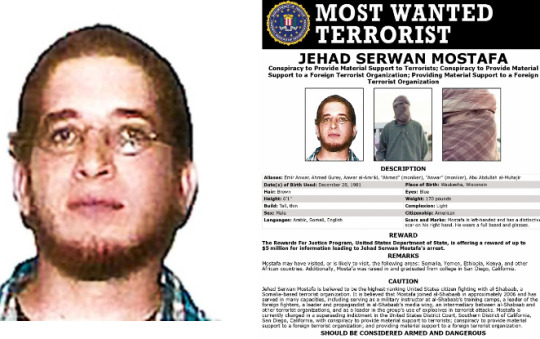
youtube
NEWS RELEASE SUMMARY – December 2, 2019
SAN DIEGO – An indictment was unsealed in federal court today charging Jehad Serwan Mostafa, a 37-old U.S. citizen and former San Diego resident who is on the FBI’s Most Wanted Terrorist List, with terrorism violations arising from his critical role in providing support to the militant Islamic terrorist organization, al-Shabaab.
The superseding indictment alleges that from no later than March 2008 through in or about February 2017, Mostafa conspired to provide material support, including himself as personnel, to terrorists; conspired to provide material support to al-Shabaab, a designated foreign terrorist organization (FTO); and provided material support to al-Shabaab.
Mostafa, also known as “Ahmed Gurey,” “Ahmed,” “Anwar,” “Abu Anwar al Muhajir,” and “Abu Abdallah al Muhajir,” was originally charged in a three-count indictment in October 2009 with similar charges. The superseding indictment announced today expands the scope of the indictment alleging that Mostafa’s support of terrorist activities and al-Shabaab continued up to and including February 2017.
On March 20, 2013, the Department of State’s Reward for Justice Program offered a reward of up to $5 million dollars for information leading to the arrest and conviction of Mostafa. U.S. Attorney Robert Brewer said the United States unsealed the superseding indictment with hopes that Mostafa will be apprehended and brought to justice. “We believe this defendant is the highest-ranking U.S. citizen fighting overseas with a terrorist organization,” Brewer said. “Al-Shabaab’s reign of terror threatens U.S. national security, our international allies and innocent civilians. Today we seek the public’s assistance in capturing Mostafa and disrupting Al-Shabaab.”
Scott Brunner, the Special-Agent-In-Charge of the San Diego FBI, stated that Mostafa is currently believed to be in Somalia, and the FBI is seeking the assistance of the public, both in the United States and East Africa, in locating and apprehending Mostafa. SAC Brunner stated that the apprehension and prosecution of Mostafa will aid in disrupting al-Shabaab’s terrorist activities, which continue to threaten U.S. national security, our international allies, and innocent civilians, both U.S. and foreign citizens alike.
SAC Brunner stated that Mostafa was raised in the Serra Mesa area of San Diego and attended high school and college in San Diego. After graduating from college, in late 2005 at the age of 23, Mostafa departed San Diego, traveling first to Sana’a, Yemen, and then on to Somalia where he engaged in fighting against internationally supported Ethiopian forces. Mostafa eventually joined al-Shabaab, a terrorist group that the U.S. Department of State designated as a Foreign Terrorist Organization in 2008.
Al-Shabaab, meaning “The Youth” in Arabic, is a violent and brutal militia group that has used intimidation and violence to undermine the Somali government and the foreign military presence supporting it. The group seeks to control territory within Somalia in order to establish a society based on its rigid interpretation of Sharia law. In 2012, it pledged allegiance to the militant Islamist organization Al-Qaeda. Over time, al-Shabaab has engaged in external operations in neighboring countries in pursuit of global jihad. While its terrorist attacks have been concentrated in East Africa, it has claimed responsibility for attacks that resulted in injuries to Americans and/or had ties to San Diego: the 2010 Kampala, Uganda suicide bombing of a bar during a World Cup soccer match that killed a U.S. citizen working for a San Diego non-profit organization; and a 2013 attack on the Westgate shopping mall in Nairobi, Kenya that killed over 60 and injured U.S. citizens, including a graduate of Torrey Pines High School. Additionally, as recently as January 15, 2019, al-Shabaab executed a coordinated attack at the DusitD2 hotel in Nairobi, Kenya, where 16 innocent civilians were killed, including one U.S. citizen.
SAC Brunner stated that for over a decade, Mostafa has played a critical role in al-Shabaab, including in its media operations, training of soldiers, and participating in attacks on Somali government forces and African Union troops. Since 2009, Mostafa has held leadership positions with al-Shabaab, and today is believed to be the highest-ranking U.S. citizen fighting overseas with a terrorist organization. In 2011, Mostafa appeared at a press conference with an al-Shabaab leader, purporting to be an al-Qaeda emissary. SAC Brunner stated that the FBI assesses that this media stunt evidences his efforts to facilitate al-Shabaab’s relationship with other terrorist groups and role in external operations.
According to SAC Brunner, in 2019, the FBI became aware of Mostafa’s participation and leadership within al-Shabaab’s explosives department. Specifically, Mostafa has been implicated in the use of improvised explosive devices (IEDs) in attacks in Somalia and in improving their effectiveness as a tool of terror. Al-Shabaab has recently used IEDs against U.S. interests in Somalia. On September 30, 2019, al-Shabaab attacked the Baledogle U.S. military airbase in southern Somalia where U.S. soldiers are located to support Somali and African Union troops, and assaulted an Italian military convoy traveling in the Somali capital of Mogadishu. Al-Shabaab claimed responsibility for both attacks. Al-Shabaab is resolved to continue attacks on innocent civilians in Somalia and in the region, and has demonstrated it will go to great lengths to threaten the security of the United States and our partners.
SAC Brunner noted that the FBI believes Mostafa continues to play a critical role in planning operations directed against the Somali government and internationally supported African Union forces in Somalia and East Africa. As a result, Mostafa continues to pose a direct threat to U.S. forces, civilians and interests.
The public is reminded that a reward of up to $5 million dollars is being offered for information leading to the arrest and conviction of Mostafa. Anyone with information about Jehad Serwan Mostafa can report tips anonymously by phone at 1-800-CALL-FBI or online at “tips.fbi.gov” or can contact the nearest FBI office, American Embassy or Consulate.
DEFENDANT Criminal Case No. 09CR3726-WQH
Jehad Serwan Mostafa Age 37 Somalia (former resident of San Diego)
SUMMARY OF CHARGES
Conspiracy to Provide Material Support to Terrorists – Title 18, U.S.C., Section 2339A(a)
Maximum penalty: Fifteen years in prison and $250,000 fine
Conspiracy to Provide Material Support to a Foreign Terrorist Organization – Title 18, U.S.C., Section 2339B(a)(1)
Maximum penalty: Twenty years in prison and $250,000 fine
Providing Material Support to a Foreign Terrorist Organization – Title 18, U.S.C., Section 2339B(a)(1)
Maximum penalty: Twenty years in prison and $250,000 fine.
INVESTIGATING AGENCIES
San Diego Joint Terrorism Task Force
Federal Bureau of Investigation
5 notes
·
View notes
Text
Bring Back your ex lover +256788811388
Zelda Love and money quick spell caster +256788811388, magic ring available worldwide. Banishing Spells – Easy Free Love Spells – Free Witchcraft Spells – Strong Lost Love Spells in SINGAPORE – SLOVAKIA – SLOVENIA – SOLOMON ISLANDS – SOMALIA – SOUTH AFRICA – SOUTH KOREA – SOUTH SUDAN – SPAIN – SRI LANKA – SUDAN – SURINAME Native Spell Healer – spiritual herbalist doctor – African traditional healers – astrologer – in Pretoria – South Africa – Johannesburg – Canada – Angola – East Africa – US – UK – Durban – cape town – Swaziland – Florida – Namibia – Zambia – worldwide How To Bring Back Lost Love – Love Potions Spells – Return Lost Love – No 1 spell caster that works in Johannesburg Money Spells That Really Work – Magic Ring for money – Spells For Money in Johannesburg Lottery Spells In Australia,Malta,Kenya,UK,Africa Most powerful lottery spells caster in World, Africa,Europe,Australia,Bahrain,Bahamas,UK Lottery winning spells – Gambling spells that work Lottery Spells. How to Use Black Magic for Lottery Numbers Lottery Spells, Win Lottery Spells, Casting Lotto Spell, Money Love Spells – Free Magic Spells Love Spells: Cast a Powerful Free Love Spell to Make Someone Love u Witchcraft spells casters online, in South Africa, Johannesburg inanda, Northgate, Northcliff, northriding, Love spells caster $ spiritual healer in South Africa, Johannesburg, Cape Town, Sandton, USA, UK, Norway, Bahrain Registered traditional healers in South Africa Powerful voodoo love spells in brunei- Kuwait, Norway,world,Africa Powerful Love Spells that work -By Africa’s Leading Spell Caster Black Magic Spell – Revenge Spells – Break up Spell – Hex Removal Spells – Evil Spirits Banishment Spell in Johannesburg – Cape Town – Pretoria MAGIC RING TO GRANT ALL YOUR WISHES – SWAZILAND – SWEDEN – SWITZERLAND – SYRIA – TAIWAN – TAJIKISTAN – TANZANIA – THAILAND – TIMOR-LESTE – TOGO – TONGA – TRINIDAD AND TOBAGO – TUNISIA – TURKEY – TURKMENISTAN – TUVALU – UGANDA – UKRAINE – UNITED ARAB EMIRATES – UNITED KINGDOM – URUGUAY – UZBEKISTAN – VANUATU – VENEZUELA – VIETNAM – YEMEN – ZAMBIA – ZIMBABWE Lottery Spells In UK,United kingdom,America,California Lottery Spells, Spells for Lottery, Gambling Spells, Win Lotto Powerful Money spells caster in world,Africa, Germany,Netherlands,Turkey Money Spells Caster – Wealth spells that work Mama Salmah Powerful Spell Caster In South Africa Money Spell – Prof Mondo Powerful Spells Caster Powerful Traditional Healer in South Africa, Johannesburg, Africa and world Powerful Money spells caster in world,Africa, Germany,Netherlands,Turkey Powerful voodoo love spells in brunei- Kuwait, Norway,world,Africa LOTTERY SPELLS CASTER IN AUSTRALIA, CANADA, USA, UK BY MAMA SALMAH Real Money Spells Caster With Powerful Money Spells LOTTERY SPELLS THAT WORK FAST POWERFUL LOVE SPELLS THAT WORK FAST BY MAMA SALMAH Powerful Spells Caster / Real black magic that work fast in World,Africa,Australia,UK,USA,Bahamas POWERFUL SPELLS CASTER, TRADITIONAL HEALING, BLACK MAGIC RITUALS EURO MILLIONS LOTTERY WINNING SPELL, USA MEGA MILLIONS LOTTERY WINNING SPELL, AUSTRALIAN LOTTERY WINNING SPELL POWERFUL SPELLS CASTER, POWERFUL LOVE SPELLS THAT WORK FAST POWERFUL SPELLS CASTER IN THE WORLD, BAHAMAS, BAHRAIN BY MAMA SALMAH POWERFUL SPELLS CASTER IN AUSTRALIA, CANADA, USA, UK POWERFUL LOTTERY SPELLS IN AUSTRALIA, AUSTRIA, CANADA, BAHRAIN LOTTERY SPELLS CASTER IN AUSTRALIA, IRELAND, CANADA, USA, UK BY MAMA SALMAH POWERFUL LOVE SPELLS CASTER IN AUSTRALIA, WORLD, AFRICA, CANADA POWERFUL MONEY SPELLS CASTER IN AUSTRALIA, AFRICA, EUROPE, GERMANY, NORWAY POWERFUL WITCHCRAFT SPELLS CASTER ONLINE, IN THE WORLD, AFRICA, CANADA, BAHAMAS, DUBAI BY MAMA SALMAH POWERFUL LOVE SPELLS CASTER IN THE WORLD, AFRICA, AUSTRALIA, CANADA, USA, UK POWERFUL MONEY SPELLS CASTER IN THE WORLD, AFRICA, CANADA, USA, UK POWERFUL NKENKWE MAGIC RING SPELLS CASTER IN THE WORLD, AFRICA, AUSTRALIA, CANADA, USA, UK POWERFUL BRING BACK LOST LOVER SPELLS CASTER IN THE WORLD, AFRICA, AUSTRALIA, CANADA, USA, UK Trusted Money Spells Caster / Powerful Money Spells Caster In World / Europe / Norway,Germany / Africa, Namibia, USA,UK,London,Canada,Australia,Singapore,South Africa, Sandton Best Lottery Spells for a Fast Jackpot Money Win Powerful Lottery Winning Spell Caster in the World Europe Germany POWERFUL SPELLS CASTER IN WORLD / AFRICA/ AUSTRALIA MOST POWERFUL LOTTERY SPELLS CASTER IN AFRICA ASIA POWERFUL MONEY SPELLS CASTER IN WORLD /AFRICA POWERFUL MONEY SPELLS THAT WORK FAST ONLINE / LONDON POWERFUL LOVE / LOST LOVE SPELLS CASTER IN WORLD/ AFRICA / EUROPE POWERFUL SPELLS CASTER IN WORLD/ GERMANY / AFRICA BLACK MAGIC EXPERT ONLINE WHEN DO YOU NEED A LOVE SPELL LOVE SPELLS CAST A FREE POWERFUL LOVE SPELL TO MAKE SOMEONE LOVE YOU FREE LOST LOVE SPELLS THAT WORK IMMEDIATELY BIND BROKEN HEARTS POWERFUL LOVE SPELLS IN AUSTRIA NORWAY Beauty Spells DEATH SPELLS Sangoma for money
Registered traditional healers in South Africa
Legit spells casters in Africa,world,Johannesburg
Traditional healers in Soweto
Lottery spell that work immediately
Black Magic Spell – Revenge Spells – Break up Spell – Hex Removal Spells – Evil Spirits Banishment Spell in Johannesbug – Cape Town – Pretoria
Powerful Money Spell – Success Magic Spells- Attract a Better Job in Johannesburg
lost love spells – love spells – bring back lost love spells – win back your love in Johannesburg
Money doubling spell – lottery spells that works fast – wealth spell service – Getting Money Within Few Days – win the lotto money in south africa johannesburg
Love spells that actually work – Long Distance Love Spells – Bring Back My Love – in Johannesburg – USA – Middle East
Gay Relationship Spell – Best Love Portion – Best Effective Marriage Spells – Herbalist bring Back lover in Austraria – Norway – Johannesburg – Usa – Uk – Kenya – Zimbabwe
Get Back Ex Boyfriend – Stop Cheating Love – illuminati secrete society – free spell caster online in Johannesburg – Ghana – Zimbabwe – Cape Town – Eastern Cape – Uganda
Lost Lover Spell – Get Back Lost Love – Free Love Spell – How To Cast Love Spell – Lost Love in Johannesburg – Canada – America – Uganda – South Africa
spell doctor – marriage spells that really work – Free love spell – spell to fix relationship – Best Love Portion in Australia – Johannesburg – South Africa – America
money lottery wallet – where to find money magic – online spell caster – witchcraft to make one Rich in South Africa – Johannesburg – Kenya – Uganda – Cape town – Ghana – Africa
Money Spells That Really Work – Magic Ring for money – Spells For Money in johannesburg
How To Bring Back Lost Love – Love Potions Spells – Return Lost Love – No 1 spell caster that works in Johannesburg
Native Spell Healer – spiritual herbalist doctor – African traditional healers – astrologer – in Pretoria – South Africa – Johannesburg – Canada – Angola – East Africa – US – UK – Durban – cape town – Swaziland – Florida – Namibia – Zambia – worldwide
Banishing Spells – Easy Free Love Spells – Free Witchcraft Spells – Strong Lost Love Spells in SINGAPORE – SLOVAKIA – SLOVENIA – SOLOMON ISLANDS – SOMALIA – SOUTH AFRICA – SOUTH KOREA – SOUTH SUDAN – SPAIN – SRI LANKA – SUDAN – SURINAME
Black Magic Spell – Revenge Spells – Break up Spell – Hex Removal Spells – Evil Spirits Banishment Spell in Johannesbug – Cape Town – Pretoria
Powerful Money Spell – Success Magic Spells- Attract a Better Job in Johannesburg
lost love spells – love spells – bring back lost love spells – win back your love in Johannesburg
Money doubling spell – lottery spells that works fast – wealth spell service – Getting Money Within Few Days – win the lotto money in south africa johannesburg
Love spells that actually work – Long Distance Love Spells – Bring Back My Love – in Johannesburg – USA – Middle East
Gay Relationship Spell – Best Love Portion – Best Effective Marriage Spells – Herbalist bring Back lover in Austraria – Norway – Johannesburg – Usa – Uk – Kenya – Zimbabwe
Get Back Ex Boyfriend – Stop Cheating Love – illuminati secrete society – free spell caster online in Johannesburg – Ghana – Zimbabwe – Cape Town – Eastern Cape – Uganda
Lost Lover Spell – Get Back Lost Love – Free Love Spell – How To Cast Love Spell – Lost Love in Johannesburg – Canada – America – Uganda – South Africa
spell doctor – marriage spells that really work – Free love spell – spell to fix relationship – Best Love Portion in Australia – Johannesburg – South Africa – America
money lottery wallet – where to find money magic – online spell caster – witchcraft to make one Rich in South Africa – Johannesburg – Kenya – Uganda – Cape town – Ghana – Africa
Lost Love Spells in Afghanistan, Albania, Algeria, Andorra, Angola, Antigua and Barbuda, Argentina, Armenia, Aruba, Australia, Austria, Azerbaijan, The Bahamas, Bahrain, Bangladesh (formerly East Pakistan), Barbados, Belarus, Belgium, Belize, Benin, Bermuda, Bhutan, Bolivia, Bosnia and Herzegovina, Botswana, Brazil, Brunei, Bulgaria, Burkina Faso (formerly Upper Volta), Myanmar (formerly Burma), Burundi, Cambodia, Cameroon, Canada, Cape Verde, Central African Republic, Chad, Chile
Money Spells in People’s Republic of China, Republic of China (Taiwan), Colombia, Comoros, Democratic Republic of the Congo (formerly Zaire), Republic of the Congo, Costa Rica, Côte d’Ivoire, Croatia, Cuba, Republic of Cyprus, Czech Republic, Denmark, Djibouti, Dominica, Dominican Republic, East Timor, Ecuador, Egypt
Protections Spells in El Salvador, Equatorial Guinea, Eritrea, Estonia, Ethiopia, Fiji, Finland, France, Faroe Islands, Gabon, The Gambia, Georgia, Germany, Ghana, Greece, Grenada, Guatemala, Guinea, Guinea-Bissau, Guyana, Haiti, Holy See (see Vatican City), Honduras, Hungary, Iceland, India, Indonesia, Iran, Iraq, Ireland, Israel, Italy, Ivory Coast (see Côte d’Ivoire), Jamaica, Japan, Jordan, Kazakhstan, Kenya, Kiribati, Korea, Korea, North, Korea, South, Kuwait, Kyrgyzstan, Laos
Lottery Spells in Latvia, Lebanon, Lesotho, Liberia, Libya, Liechtenstein, Lithuania, Luxembourg, Republic of Macedonia, Madagascar, Malawi, Malaysia, Maldives, Mali, Malta, Marshall Islands, Mauritania, Mauritius, Mexico, Federated States of Micronesia, Moldova, Monaco, Mongolia, Montenegro, Morocco, Mozambique, Myanmar, Namibia, Nauru, Nepal, Netherlands, New Zealand (Aotearoa), Nicaragua, Niger, Nigeria, Niue, North Korea, Norway, Oman, Pakistan, Palau
Love Spells: Cast a Powerful Free Love Spell to Make Someone Love u Call or whatsapp +256788811388 Email: zeldaquickspells
#lovers#spells#magic#worldwide#relationship#marriage#africa#america#netherlands#sweden#germnay#turkey#noorway#southafrica#kenya
1 note
·
View note
Text
1982: Ilhan Omar is born in Somalia, the youngest of seven children.
1997: Omar, still a teenager, settles in the Cedar-Riverside neighborhood of Minneapolis. She and her family had fled Somalia’s civil war and spent four years in a refugee camp in Kenya.
2002: Omar, now 19, marries Ahmed Hirsi, 22, in their faith tradition in Minnesota, but they don’t legally marry.
2008: Omar and Hirsi, now the parents of two children, reach an “impasse in our life together” and divorce in their faith tradition.
2009: Omar, at 26, marries Ahmed Nur Said Elmi, 23, whom she identifies only as a “British citizen.” School records show he attended high school in St. Paul and studied art at North Dakota State University.
2011: Omar and Elmi end their relationship and divorce in their faith tradition, but do not legally divorce until 2017.
2012: Omar and Hirsi reconcile and have a third child together.
2014-15: Omar files joint tax returns with Hirsi, though they are not yet legally married; she remains legally married to Elmi.
2016: Omar, endorsed by the DFL over longtime incumbent Phyllis Kahn, is elected to the Minnesota House, becoming the first Somali-American, Muslim legislator in the United States. But her campaign is rocked by allegations in the conservative Power Line blog suggesting that Elmi is her brother and they married for unspecified immigration benefits
7 notes
·
View notes
Text
Mohamed, 66, who governed Somalia from 2012 to 2017, beat incumbent Mohamed Abdullahi Mohamed, known locally as Farmajo, in a final round of voting to reclaim the post on May 15. While Farmajo forged close relations with Ethiopian Prime Minister Abiy Ahmed and Eritrean President Isaias Afwerki, Mohamud has long-standing ties with the rulers of Ethiopia’s northern Tigray region, who fought a war with Abiy’s forces and its Eritrean allies from late 2020 until a truce was agreed in March.
The power shift has emboldened the Tigrayans, who are [allegedly] considering attacking the Eritrean capital of Asmara, according to three diplomats in the region who spoke on condition of anonymity because they aren’t authorized to comment. That would open a new chapter in the Ethiopian conflict, which has already claimed thousands of lives.
Tigray President Debretsion Gebremichael wrote to Mohamud on Monday congratulating him on his victory and expressing his “readiness to cooperate in the overall stability of the region, building upon excellent pre-existing relations.” And Getachew Reda, a senior Tigrayan leader, said in a Twitter posting on the Somali elections that Isaias’s “pharaonic ambition in the Horn of Africa is decidedly unraveling.” [...]
Farmajo’s defeat has been welcomed in Kenya, which clashed with his administration over the rights to oil blocks and its approach toward tackling al-Shabaab. [...]
Mohamud’s fight against al-Shabaab will be bolstered by a decision by US President Joe Biden to send Special Operations troops back to Somalia to revive a counterterrorism mission that was ended by Donald Trump’s administration.
17 May 22
21 notes
·
View notes
Text
[ad_1] Ugandas President Yoweri Museveni. Uganda's Lieutenant-General Muhoozi Kainerugaba, in a sequence of tweets, threatened to invade Kenya.His father, President Yoweri Museveni has since eliminated him as commander of land forces. Uganda's Foreign Affairs Ministry allayed fears and guaranteed it valued shut ties with Kenya.Uganda's president, Yoweri Museveni, has eliminated his son, Lieutenant-General Muhoozi Kainerugaba, because the commander of the land forces of the Uganda People's Defence Force (UPDF), after a sequence of tweets that appear to have sparked a diplomatic tiff with Kenya.However, the defence ministry described the transfer as a promotion for Kainerugaba, since he's now a normal and can stay a senior presidential advisor for particular operations.It mentioned Major-General Muhanga Kayanja had been promoted to lieutenant-general and was appointed because the commander of land forces.READ | UN refugee agency probing corruption in Uganda, KenyaKainerugaba, who has greater than 600 000 Twitter followers, had tweeted about his admiration for his "brother", the previous president of Kenya Uhuru Kenyatta, who stepped down as William Ruto took workplace final month after normal elections.In one of many tweets, he mentioned Kenyatta would have "easily" received re-election, however the two-term restrict stopped him.The eccentric military normal didn't cease there and teased his forces might march into Kenya and take the nation with out a lot hassle.In one of many tweets he mentioned: "After we create our East African Federation. President Museveni will be president, Afande Ruto will be vice president. My brother Uhuru will be foreign affairs minister. I just want to be CDF of the East African forces."This has since sparked an engagement between the newly-elected Ruto and Museveni, who has been in energy since 1986.In an official assertion, the Uganda Foreign Affairs Ministry mentioned it had famous the Twitter storm with respect to the "relationship between Uganda and our brotherly neighbour, the Republic of Kenya" and it wished to reiterate "its commitment to good neighbourliness".Uganda additionally mentioned it didn't conduct its authorities's enterprise and overseas coverage by means of social media.Leading opposition politician Bobi Wine, in a message to Kenyans, mentioned the reckless tweets got here from a household that thrived on human rights violations.He added:Dear Kenyans, you now perceive what it means to stay in Uganda underneath General Museveni and his son, whom he gifted the best army ranks and put him in control of our land forces! Sadly, beneath the mindless tweets lies a monster who brutalises and tortures our folks for enjoyable.In 1976, then-Uganda chief Idi Amin Dada declared a big a part of Kenya belonged to Uganda and then-Kenyan founding president Jomo Kenyatta warned he would deal ruthlessly with neighbours who publicly expressed "their sinister intentions".At the identical time, Somalia's president, Siad Barre, additionally claimed elements of northern Kenya belonged to Somalia.As I depart my beloved troopers, let me say a prayer for them. 'May the Lord bless you and preserve you, May the Lord make His face to shine upon you, May the Lord be gracious to you; May the Lord carry up His countenance to you...and provide you with peace.' pic.twitter.com/E9W6IfSYhX— Muhoozi Kainerugaba (@mkainerugaba) October 4, 2022Declassified US cables confirmed within the occasion of a struggle with Amin, Kenyatta was going to enlist the assistance of the US for the procurement of arms as a result of Amin was understood to be armed to the enamel with Soviet equipment.Had this gone forward, the struggle between Uganda and Kenya would have been a grand stage for the Cold War.The News24 Africa Desk is supported by the Hanns Seidel Foundation. The tales produced by means of
the Africa Desk and the opinions and statements which may be contained herein don't mirror these of the Hanns Seidel Foundation. [ad_2] Source link
0 notes
Text
Same-sex relationships are still a crime in 69 countries
New Post has been published on https://cialiscom.org/same-sex-relationships-are-still-a-crime-in-69-countries.html
Same-sex relationships are still a crime in 69 countries
Some nations around the world, these kinds of as Papua New Guinea and the United Arab Emirates, jail people in brazenly similar-sex associations for a long time. And in Iran, Sudan and Yemen, they can end up on dying row.
Of the 193 countries identified by the United Nations, the subsequent criminalize identical-intercourse relations, according to the Geneva-dependent International Lesbian, Gay, Bisexual, Trans and Intersex Association, which advocates on behalf of a lot more than 1,300 member companies throughout the world.
Africa
Algeria
Angola
Botswana
Comoros
Eritrea
Ethiopia
Gambia
Ghana
Guinea
Kenya
Liberia
Libya
Malawi
Mauritania
Mauritius
Morocco
Namibia
Nigeria
Senegal
Sierra Leone
Somalia
South Sudan
Sudan
Swaziland
Tanzania
Togo
Tunisia
Uganda
Zambia
Zimbabwe
Americas
Antigua and Barbuda
Barbados
Dominica
Grenada
Guyana
Jamaica
St. Kitts & Nevis
St. Lucia
St. Vincent & the Grenadines
Asia
Afghanistan
Bangladesh
Bhutan
Brunei Darussalam
Iran
Iraq
Kuwait
Lebanon
Malaysia
Maldives
Myanmar
Oman
Pakistan
Qatar
Saudi Arabia
Singapore
Sri Lanka
Syria
Turkmenistan
United Arab Emirates
Uzbekistan
Yemen
Oceania
Kiribati
Papua New Guinea
Samoa
Solomon Islands
Tonga
Tuvalu
CNN’s Doug Criss contributed to this report.
Supply backlink
2 notes
·
View notes